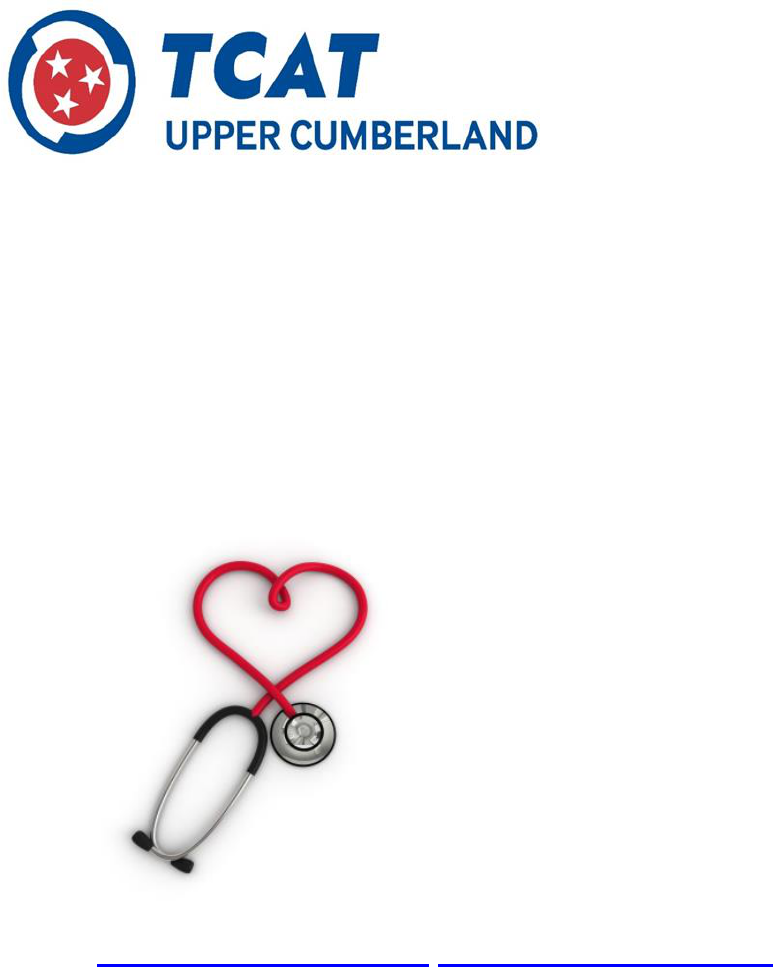
P a g e 1 | 47
910 Miller Avenue/ Crossville, TN 38555
740 High Tech Drive / Livingston, TN 38570
1100 Neal Street/ Cookeville, TN 38501
PRACTICAL NURSING HANDBOOK
2024-2025
School Website: www.tcatcrossville.edu/www.tcatlivingston.edu
TCAT Upper Cumberland Phone: 931-444-1328
TCAT Upper Cumberland Campus Fax: 931-484-8911
TCAT- Livingston Campus Phone: 931-823-5525
TCAT-Livingston Campus Fax: 931-823-7484
Revised 05/31/2024

P a g e 2 | 47
HEALTH EDUCATION DEPARTMENT STAFF
Cynthia Tompkins, RN/BSN DIRECTOR OF NURSING
Tammy Premo, RN AND PN Instructor
Ashley Houston, RN, BSN PN Instructor
Amanda Loeffler, APRN, CNM, MSN, BSN, RN PN Instructor
Marsha Hedgecough, RN, BSN PN Instructor
Hansel Cooper, RN, BSN PN Instructor
Linda Brown, RN, BSN PN Instructor
Kathy Wilson, RN PN Instructor
Adjunct Faculty for Clinical Instruction:
Nicole Britt, RN
Linda Clouse, RN
Veronica Clouse, RN
Tina Dailey, RN
Teresa Elliott, RN, BSN
Sheila Floyd, RN
Carie Honeycutt, RN, BSN
Deborah Hall-Turner, RN,BSN
Jennifer Thacker, RN/BSN, CCRN
Daily Schedule
Classroom(times may vary)………………7:30/7:45 am until 2:30/4:00 pm
Classroom PN Evening Class…………………………... 4:00 pm until 9:45 pm
*Clinical Day classes (times may vary) .……….……….6:30 am until 3:30 pm
*Clinical PN Evening Classes (times may vary)…………4:00 pm until 10:00 pm
*Some clinical rotations occur during different hours.
Students are notified of times and dates in advance of these rotations.
The Nursing building is shared with Dual Enrolled Students from the local High
Schools in the Upper Cumberland at each location in Crossville and Livingston
Instructors: Kathy Wilson, RN and Linda Clouse, RN and Deborah Hall-Turner, RN/BSN

P a g e 3 | 47
THIS HANDBOOK IS SUBJECT TO CHANGE
Dear Practical Nursing Student,
Welcome to the Tennessee College of Applied Technology - Upper Cumberland and Tennessee
College of Applied Technology – Livingston Practical Nursing with the main campus in Crossville,
branch campus in Livingston and Cookeville, TN being extended campus locations. Entering the
Practical Nursing program indicates a commitment on your part to enhance your future. Our goal, as
faculty, will be to help you achieve this objective.
During the three semesters of this program, you will find that meeting the scholastic requirements and
clinical practicum will require a large amount of time and attention as you will be focusing on the
didactic portion of the program. We advise against any student trying to work a night shift and must
report to school at scheduled hours that range from 0630 (clinical) and 0745 (school) for day classes
and 1530 for evening classes. Most students find it difficult to stay awake and recall material from
lectures after having worked all day/night.
Our class schedule is designed to meet curriculum requirements established by the Tennessee Board
of Nursing. Missing any portion of class for absences will mean you miss valuable information which
you could be tested over on your state board exam. During your tenure with our school, do your
absolute best to avoid absences. Excessive absenteeism may interfere with the successful
completion of this 1296-hour program.
This Practical Nursing Handbook supersedes the school handbook and provides specific information
regarding program requirements, policies and procedures for students enrolled in the Practical
Nursing Program. It is the responsibility of each student to become thoroughly familiar with all
guidelines contained in the handbook.
We look forward to our time with you and will actively seek to ensure your success in the Program.
If we can assist you in any way, please feel free to ask.
Sincerely,
PN Faculty
TABLE OF CONTENTS
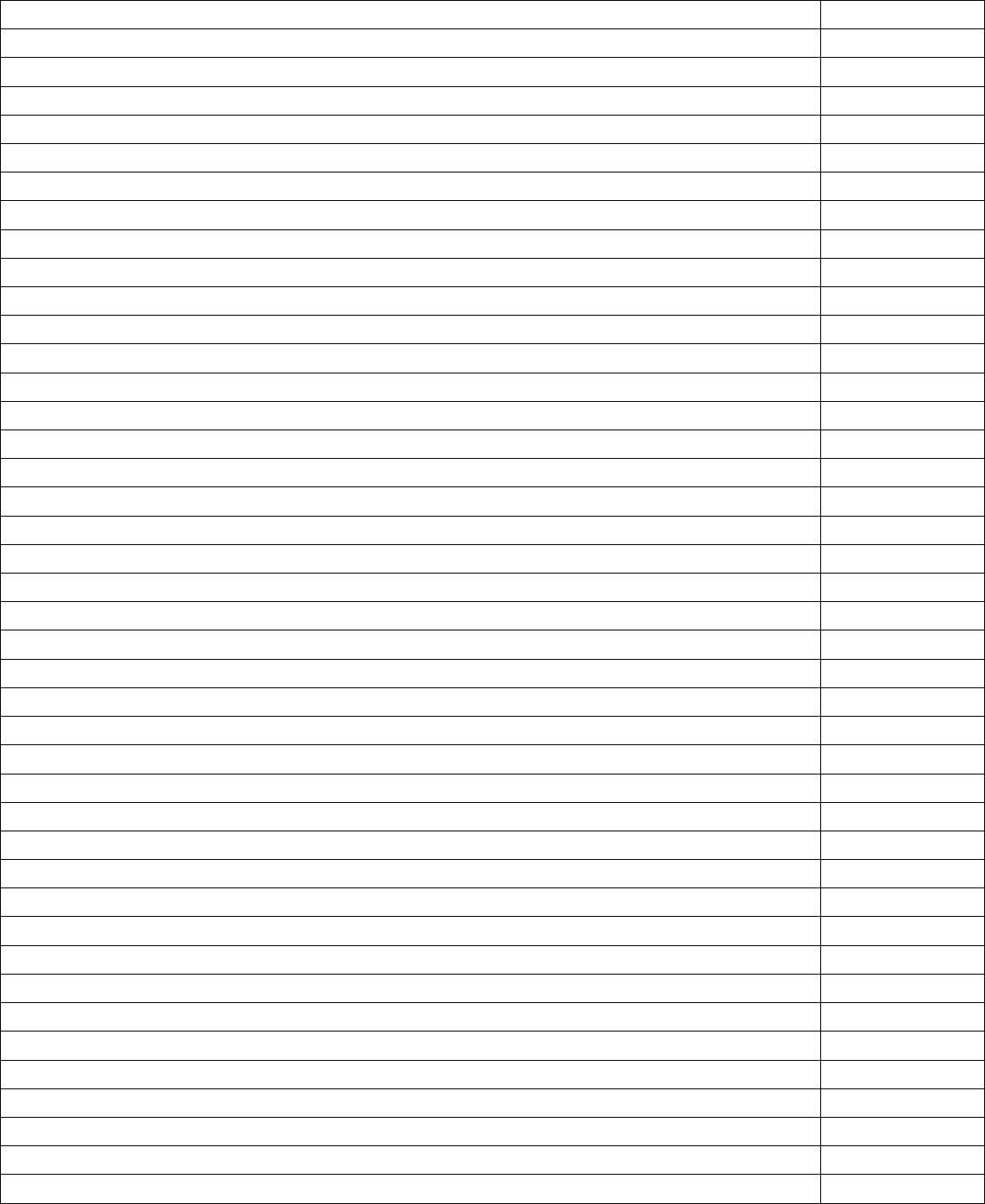
P a g e 4 | 47
Staff Roster
2
Welcome
3
Table of Contents
4
Introduction - Definition of Practical Nursing
5
Qualifications of Practical Nursing & PN Mission Statement
6-7
Philosophy & Program Objectives
8
Standards of Professional Conduct in Nursing
9
Admission Requirements
10
Transfers to Program
11
Withdrawal and Readmission
12-13
Curriculum Outline/Sequence/Hours
14
Course Descriptions
15-18
Project Requirements / Community Service
18
National Technical Honor Society
19
PN Safety Checklist
20
Attendance
21
Student Personal/Classroom, Clinical Responsibilities
22
Progress Report
23-24
Attendance Policy
26
Clinical Attendance/Grading Policy
26-27
Classroom Dress / Hygiene
26
Uniform Dress Code
26
Policy on Conduct
26-27
Examinations Policy
27-28
Make-up Exam Policy
28
Completion Requirements, Graduation Criteria
28-29
ATI® Nursing Educations for NCLEX Prep
29-30
PN Licensure Notation
31
Clinical “At Risk” Policies
33
Clinical Agreement/Clinical Competencies
33-35
Clinical Reminders
36
Clinical Competency Form (example)
37
Medication Errors
38-39
Clinical Performance Grade Sheet (example)
40
Challenging the Nurse Aide Exam
41
Student Nondisclosure Agreement
42
PN Signature Form
43
State Licensure
44
Cell Phone Policy Acknowledgement
45
Student Acknowledgement of Safety Checklist
46
Student Acknowledgement of PN Policies
47

P a g e 5 | 47
INTRODUCTION
The Tennessee College of Applied Technology- TCAT Upper Cumberland and TCAT- Livingston
Practical Nursing Program Handbook contains Policies and Procedures to assist students in the
Practical Nursing Program. Since entrance into TCAT-Upper Cumberland and TCAT- Livingston is
completely voluntary, it is inherent that upon entrance into the school the student accepts certain
responsibilities and obligations. These responsibilities include such things as academic/clinical
performance and social behavior consistent with the philosophy of the Department. These standards
of behavior and performance may be higher than is required by law or the public; however, each
student must adhere to the standards and policies required. A form is signed by students indicating
receipt and understanding of the Student Handbook.
PROGRAM PURPOSE
• To prepare qualified men and women for the vocation of practical nursing as active members
of the health team concerned with the care of the sick and their rehabilitation, the prevention of
illness, and the promotion of wellness.
• To provide educational opportunities to assist the learner to acquire knowledge, gain
understanding and develop skills essential to render safe, effective bedside nursing care, while
enabling the learner to become progressively self-directed and self-disciplined.
• To prepare a person to assume his/her role as a licensed practical nurse and to function under
the guidelines defined in the Nurse Practice Act regardless of age, sex, religion, color, race,
national origin, or handicap, sexual preference, or veteran status.
• To provide area hospitals and other health care facilities with qualified individuals to meet a
definite nursing need.
DEFINITION OF PRACTICAL NURSING
Tennessee Code Annotated, Section 63-7-103.
Practical Nursing is defined by the Nurse Practice Act of 1967 (Tennessee Senate Bill 375) as
follows:
“The practice of practical nursing means the performance for compensation of selected acts required
in the nursing care of the ill, injured or infirm, and/or carrying out medical orders prescribed by a
licensed physician or dentist under the direction of a licensed physician, dentist, or professional
registered nurse. The licensed practical nurse shall have preparation in and understanding of
practical nursing but shall not be required to have the same degree of education and preparation as
required of a registered nurse.”
P a g e 6 | 47
QUALIFICATIONS FOR PRACTICAL NURSES
Tennessee Code Annotated, Section 63-7-109.
“An application for a license to practice as a licensed practical nurse shall submit to the board
evidence in such form as the board may prescribe that the applicant:
(1) Is in good physical and mental health; and
(2) Has completed the twelfth grade or its equivalent or has successfully passed the test for and has
received a general equivalency diploma and such other preliminary qualifications and
requirements as the board may describe; and
(3) Has successfully completed a course of study in an approved school for practical nurse, as
defined by the board, and the applicant holds a certificate therefrom, or the approved school has
certified to the board that the applicant has met all requirements for a certificate.”
MISSION OF THE PRACTICAL NURSING PROGRAM
The mission of the Practical Nursing program is to provide quality education in a positive learning
environment which allows the student to acquire the basic skills needed to obtain licensure as a
Practical Nurse and gain employment in the field.
The Tennessee College of Applied Technology Upper Cumberland serves as the premier supplier of
workforce development throughout the State of Tennessee. The college fulfill their mission by:
• Providing competency-based training through superior quality, traditional and distance learning
instruction that qualify completers for employment and job advancement.
• Contributing to the economic and community development of the communities served by training
and retraining employed workers.
• Ensuring that programs and services are economical and accessible to all residents of
Tennessee.
• Building relationships of trust with community, business, and industry leaders to supply highly
skilled workers in areas of need.
PHILOSOPHY OF THE PRACTICAL NURSING PROGRAM
We the faculty believe that:
• Each human being is unique and worthy of dignity.
• Education is a continuous process of developing individuals to their fullest potential based on their
individual physical and mental abilities.
• Education must stay abreast of society’s changing demands to benefit the individual and society.
• Technical education prepares individuals for gainful employment regardless of sex, race, creed,
handicap and/or socio-economic status.
• Technical school is an appropriate setting for preparing individuals for licensure at the beginning
level of nursing practice.
P a g e 7 | 47
• Nursing is a profession of serving others and constitutes a service in which nursing problems are
identified and a course of action is planned, implemented, and evaluated in accordance with each
patient’s physical, spiritual, emotional, and social needs.
• Nursing education builds on a foundation of basic education, teaches an art and science which
recognizes the need for practitioners prepared to function effectively in a changing health care
delivery system.
• Nursing education should allow for upward and/or horizontal mobility in the achievement of short
term and long-range goals.
• Practical nursing is an integral part of all nursing and that the practical nurse, as a contributing
member of the health care team, practices within a legally defined role.
• Practical nursing education encompasses theoretical principles, supervised clinical experiences,
and attitude awareness concepts to facilitate personal and vocational development.
• Learning is facilitated through motivation, guidance, and an environment that is conducive to
student involvement and responsibility for achievement of an educational goal.
• The curriculum should be reviewed and evaluated periodically to reflect current concepts and
practices within the standards of the nursing profession.
PUBLIC LAW 93-380 PRIVACY RIGHTS ACT
Tennessee College of Applied Technology adheres to the guidelines developed by the Department of
Health, Education, and Welfare regarding the privacy rights of parents and students. Access to official
records is provided to students and parents of dependent students as it relates to them, but limits
dissemination of personal identifiable information without the student’s consent.
POLICY ON AFFIRMATIVE ACTION
Each Tennessee College of Applied Technology is dedicated to the ideals, principles, and policies of
Title VI of the Civil Rights Act of 1964. Each offers equal opportunity for admission into the
educational programs and employment to all qualified person without regard to race, color, religion,
sex, national origin, or age so long as the student has an employment objective and can benefit from
the instruction.

P a g e 8 | 47
OBJECTIVES OF THE PRACTICAL NURSING PROGRAM
Upon completion of these courses, the graduates will be able to:
• Safely perform therapeutic and preventive nursing interventions incorporating scientific and social
foundations basic to practical nursing
• Utilize the nursing process in participating in the assessment, planning, implementation, and
evaluation of nursing care.
• Understand the concepts of health and demonstrate knowledge of measures necessary to attain
and maintain health.
• Demonstrate respect for the dignity of individuals.
• Contribute to the identification of the physical, emotional, and cultural needs of the consumer.
• Apply communication techniques to establish effective interpersonal relationships.
• Recognize the licensed practical nurse’s role within the profession of nursing and the health care
delivery system.
• Seek out learning opportunities and assume responsibility for continuing education and
professional growth.
• Obtain the basic skills needed to obtain licensure as a Practical Nurse and gain employment in the
field, thereby contributing to the economic and community development of the community we
serve.
These objectives are further broken down into specific areas of instruction. Students are provided a
list of objectives for each unit within each instructional course. These objectives are evaluated and
updated annually by faculty members. The Advisory Board is also asked to review course objectives
periodically. The current needs of the job market are identified through input from Advisory Board
Members, follow-up, and literature.
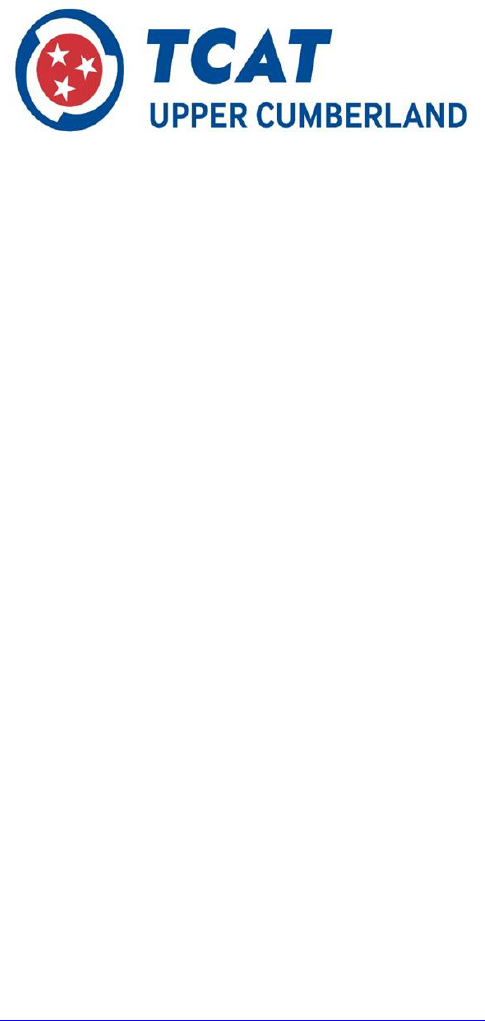
P a g e 9 | 47
Standards of Professional Conduct in Nursing
Standards for Student Conduct
The nursing faculty believes that standards of professional conduct are an inherent part of the
profession of nursing and expect students enrolled in the Practical nursing program to adhere to the
standards. Practical nursing students practice within the boundaries of the Tennessee State Board
Nurse Practice Act, the nursing code of ethics and standards of practice, the PN program’s health
education guidelines and the Tennessee Board of Regents rules and regulations.
The use of abusive language or disruptive behavior directed toward peers, staff, faculty, or
hospital personnel will not be tolerated and may result in immediate dismissal from the program.
Such behavior is inconsistent with professional standards and inappropriate for students aspiring to a
career in nursing. The Director and/or instructor will document any inappropriate, erratic, or
unprofessional behavior. The faculty will counsel and plan corrective actions, if indicated.
Standards of Professional Conduct Include:
• Confidentiality: Respects the privacy of patients and respects privileged information.
• Accountability: Is answerable for one’s action; answers to self, the patient, the profession, and
the institution.
• Responsibility: Executes duties associated with the nurse’s particular role.
• Agency’s Policies and Procedures: Reads and adheres to the agency policies and
procedures.
• Honesty: Practices fairness and straight forwardness of conduct, displays moral excellence
and truthfulness.
• Punctuality and Promptness: Is on time for all classroom and clinical assignments.
• Dependability: is trustworthy and reliable.
• Respect: Treats others with consideration and courtesy.
• Professional Appearance: Adheres to the established dress code in all clinical and
professional activities.
• Ethical: Adheres to the Code of Ethics for Nurses with Interpretive Statements (200)
establishing the ethical standard for the nursing profession. The document is under copyright
and can be viewed at http://www.nursingworld.org/ethics/ecode.htm
• Legal: Operates within the standards of care related to the student practical nurse role.
• Safety: Prevents or minimizes risks for physical, psychological, or emotional jeopardy, injury, or
damage.
• Civility: All students in the nursing program are expected to contribute to a positive learning
environment. As a nursing student, you are expected to be reflective, courteous, respectful,
and empathetic to classmates, instructors, and to other TCAT staff assisting you succeed in this
program.
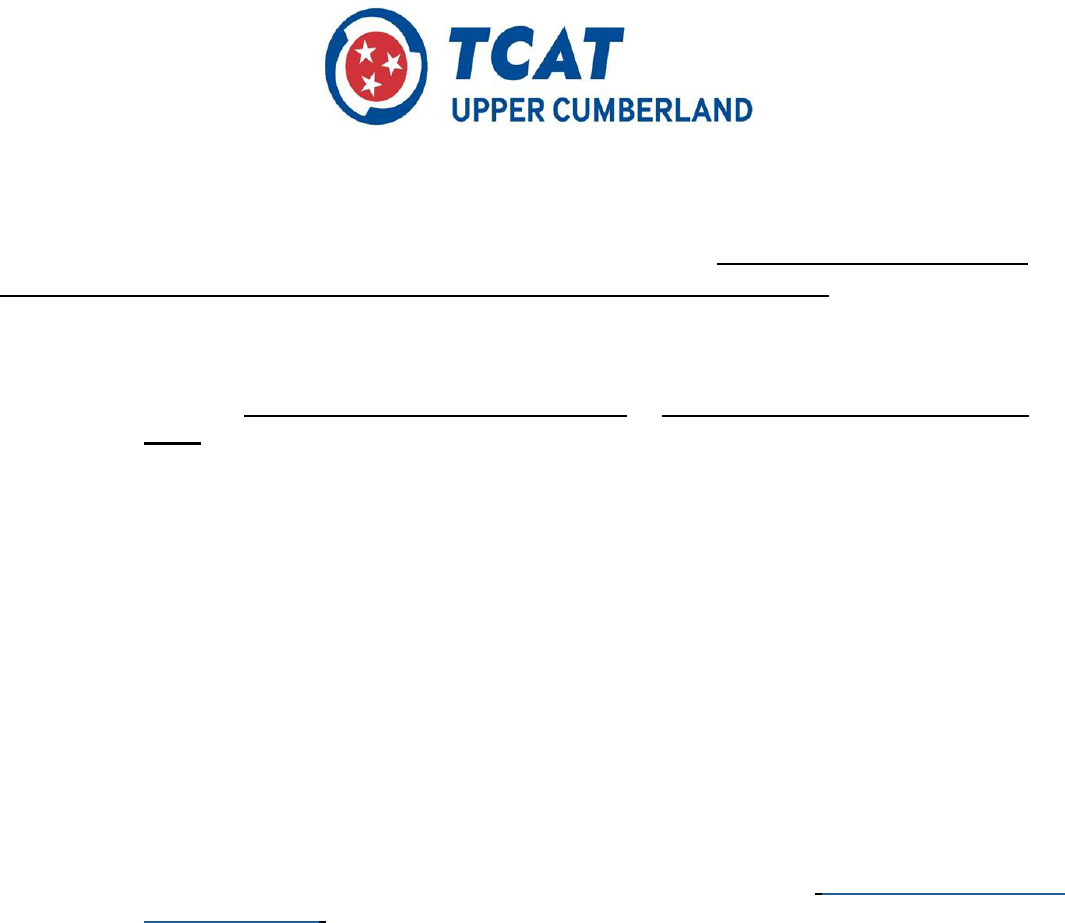
P a g e 10 | 47
ADMISSION TO PROGRAM
Admission to the Tennessee College of Applied Technology (TCAT Upper Cumberland and
Livingston) Practical Nursing Program is open to all applicants who are 17 years of age and will
turn 18 prior to clinicals starting during the first trimester and older who have met the following
criteria for enrollment:
• Successful passage of the Hesi™ Entrance Exam or meets minimum ACT requirement for
admission.
o HESI ™, score of 70% in reading and math or ACT scores of 19 in reading and
math (taken within 2 years) Student is responsible for HESI fee.
• Completed and returned the application packet.
o Application form
o Evidence of high school graduation or GED equivalency
o Physical Form (applicant section)
o MMR, Hepatitis B, TB, & Varicella (Chicken Pox) Proof of immunization or immunity
o FASFA confirmation sheet attached (unless planning on paying cash on first day)
o Program space availability.
o Participate in a Pre-orientation session.
Once accepted into the PN program all candidates must:
• Complete a physical examination by licensed physician or other health professional qualified in
the physical examination process, this examination must have occurred within one year of the
enrollment date. The completed form along with proof of immunization status must be
returned to the school prior to the first day of class.
• Can safely perform all the duties necessary to the training program without limitations or danger to
themselves, their personal health or that of the public for which they may be responsible.
▪ Must provide a valid “BLS Healthcare Provider CPR card.” Prior to the start date
of the trimester.
▪ Crossville Campus Students: American Red Cross/AH verification
▪ Livingston Campus Students: American Heart Association verification
• Completion of a criminal background screening, required by affiliating clinical practice sites.
• Provide proof of health insurance or accident coverage and a valid driver’s license on the first day
of class.
Applicants not accepted will remain on the waiting list provided Hesi™/ACT scores are current. ACT
scores are admissible for 20 years or younger). It is the applicants’ responsibility to update packets
with new scores, otherwise they will be removed from the waiting list and information shredded.
The Practical Nursing Program is dedicated to the ideals, principles, and policies of Title VI of the
Civil Rights Act of 1964. The Practical Nursing program offers equal opportunity for admission into
the program to all qualified persons without regard to race, color, religion, sex, national origin, or age,
so long as the student has an employment objective, can meet the stated enrollment qualifications,
and can benefit from the instruction period.
In consideration of the physically handicapped person, entranceways and sidewalk elevations,
classrooms, and restrooms have been adapted to provide easy access to the building. The
Tennessee State Board of Nursing (TBON) reserves the right to deny licensure to anyone
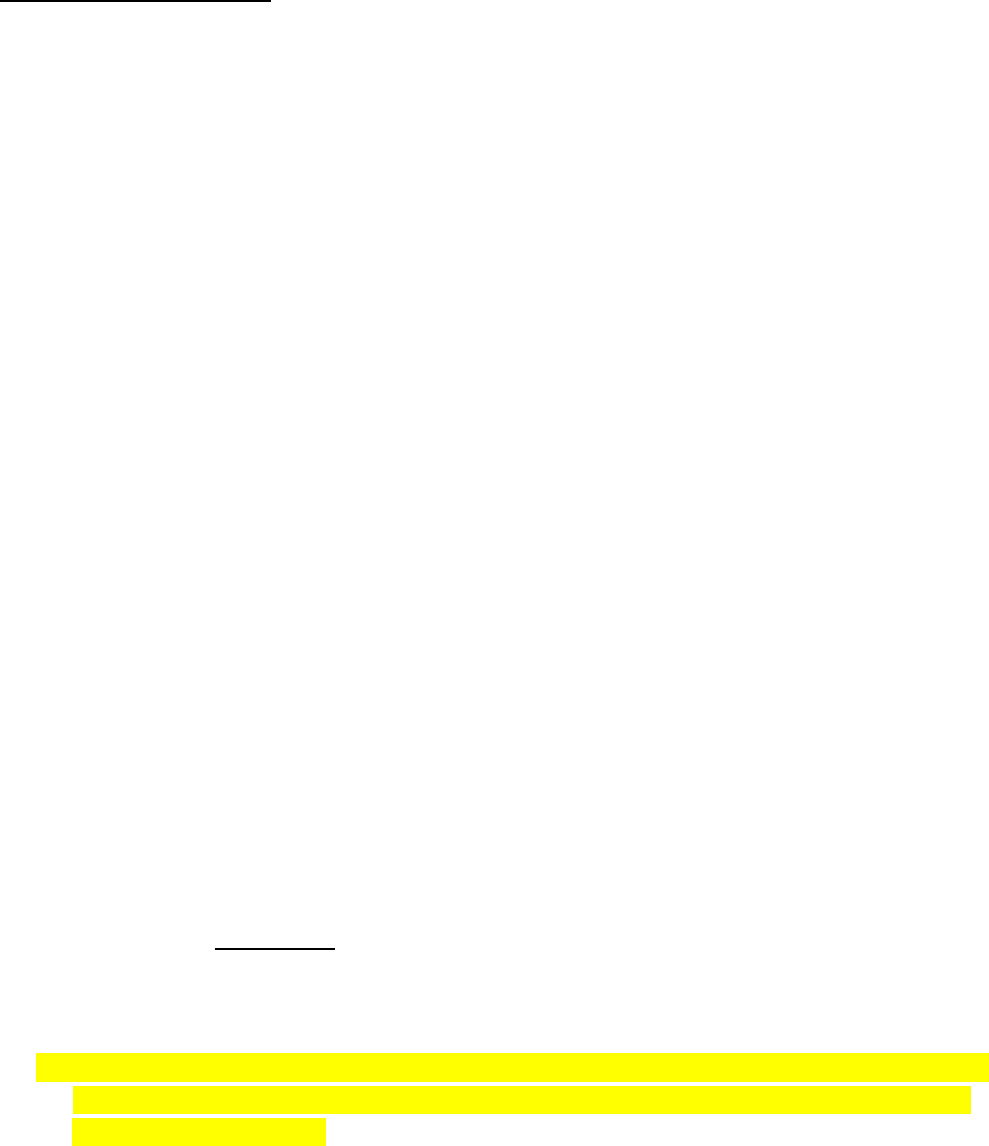
P a g e 11 | 47
convicted of a crime. They evaluate whether to license applicants on an individual basis. They will
deny licensure for certain crimes committed within the last five (5) years without question.
TRANSFER STUDENTS
To be considered for transfer into the practical nursing a student may transfer from any Tennessee
Board of Nursing approved practical nursing program or registered nursing program, college, or
university, at which he/she has been actively enrolled within the past twelve (12) months and has
successfully completed basic nursing courses. Students suspended from other Tennessee
College of Applied Technology nursing schools may be ineligible for admission to the Practical
Nursing Program for a minimum of 6 months or longer subject to the discretion of the Administrative
Staff at TCAT Upper Cumberland/Livingston program, the potential student must make an
appointment to meet with the Health Education Department Coordinator.
At this meeting the following must be provided:
• Completion of TCAT Upper Cumberland and TCAT - Livingston application for the practical
nursing program
• High School transcript or GED (45 minimum score)
• Required Entrance Test - This test will be available on campus if not already taken. The
entrance test will be given only once for each transfer student on the TCAT Upper
Cumberland/TCAT – Livingston Campus. If failure results, the student can arrange to
repeat the test when Entrance exams are routinely scheduled for nursing students.
• College or Technology school transcripts along with course descriptions
• One (1) professional contact, upon request
• Recent physical examination and immunization proof (within 1 month)
After the above criteria, have been met and the student is eligible to enroll into the current class, the
student must demonstrate an 80% competency level for each practical nursing course in the form of
comprehensive, objective, challenge examinations for all courses transferred.
Policy on Withdrawal and Readmission to Practical Nursing Program
• Any student who withdraws* from the program, but wishes to re-enter must request an
appointment with the Health Education Coordinator to discuss the possibility of re-entering
* Withdrawal - Exiting the program for any reason: personal, academic failure, attendance,
medical, etc. Students with other disciplinary infractions e.g. clinical “at risk behaviors, see
page 35, may no longer meet admission criteria.
• If unsuccessful in any course students may remain in school until completion of the trimester
with the understanding that they will have to repeat the current trimester and complete all
trimester courses.
• If a student fails two courses during their enrollment period of 1296 hours, they must
wait at least 12 months before re-applying to repeat the entire program.
• Students may have to be readmitted to the beginning of the nursing trimester (first Trimester).
• Each student’s situation will be evaluated based on documented criteria such as grades,
progress evaluation report, attendance, etc.
• Readmission for any reason to the PN program is based upon space availability.
Academic Retention and Readmission at TCAT Upper Cumberland and TCAT –
Livingston: 2:03:01:05

P a g e 12 | 47
Student Progress
A. Evaluations of student achievement toward program identified occupational competencies
(in this case Practical Nursing) are recorded for each student at the end of 72 day of
instruction that compromise a term. Those evaluations shall be based on the following
scale of progress (Allied Health Science Programs, e.g. Practical Nursing, require a “B” (80
percent) or better average per term):
1. A = 90-100
2. B = 80-89
B. Grades for courses will be determined as described in course syllabi. Students will be
graded in the following categories:
1. Clinical/Skill Proficiency
2. Theory/Related Information
C. Students must achieve a “B” (80 percent) or better average per course.
D. Failure to maintain the required grade average will result in suspension at the end of
the term.
E. Additional retention of standards for specific programs may be established by the college
based upon accreditation or licensing requirements applicable to the program.
F. The student has an overall GPA is 80 % for the trimester.
Readmission from Suspension for Grades or Attendance
A. The president may consider for readmission the application the applicant who has been
suspended.
B. Criteria that the president will consider in assessing candidacy for readmission are as
follows:
1. Assessment of the candidate’s willing to address those deficiencies that contributed
to the prior suspension, and
2. Assessment of the likelihood that the readmitted student may succeed in pursuing
their training objective.
C. Third Trimester- Any student who withdraws during the THIRD TRIMESTER may have
several options to complete the program. These options are available only if:
1. The student has an overall GPA is 80% for the trimester.
2. The student has no record of unsatisfactory performance/disciplinary evaluations.
3. There is available space for placement into the class.
D. If a student has not enrolled within 4 months the student will be required to re-test all
course finals, to prove competency. If unsuccessful in testing, they must repeat the
previous trimester courses.
The Tennessee Board of Nursing determines required clinical practice hours (430 hours).
Missing excess hours may require the student to complete those hours prior to issuing a
diploma and a state board of nursing application.
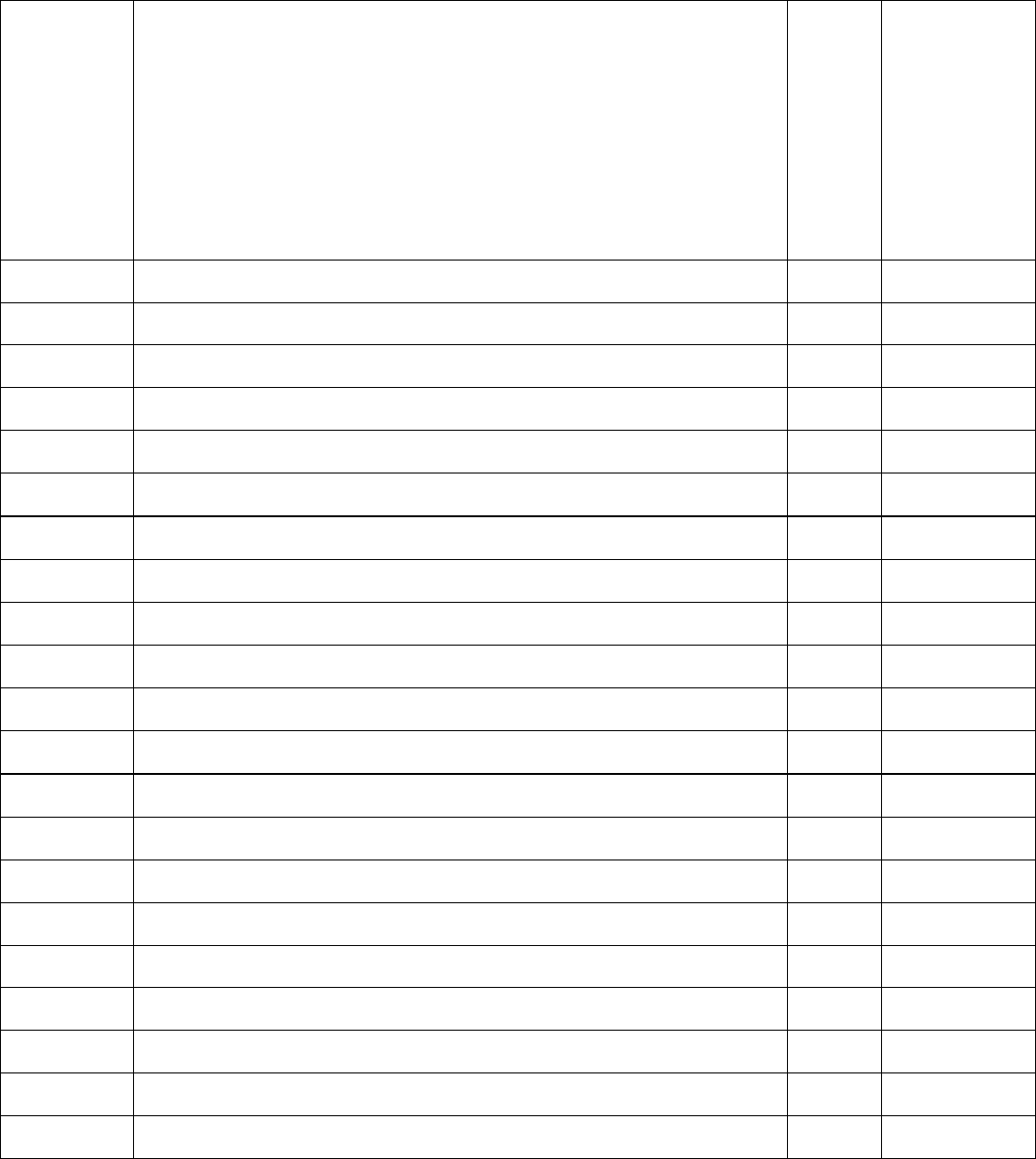
P a g e 13 | 47
Course #
TCAT – Upper Cumberland/TCAT- Livingston PN
Curriculum Outline/Course Sequence
For information on curriculum content, minimum
instruction, and clinical experience, see Administrative
Rules of the Tennessee Board of Nursing 1000-02.-09
Hours
Trimester
LPN 0001
Worker Characteristics
6
1
LPN 1010
Basic Nursing Principles
90
1
LPN 1020
Fundamentals of Nursing
124
1
LPN 1030
Administration of Medications and Basic IV Theory
80
1
LPN 1040
Anatomy and Physiology
96
1
LPN 1050
Clinical I
36
1
LPN 0002
Worker Characteristics
6
2
LPN 2010
Pharmacology I
51
2
LPN 2020
Mental Health
60
2
LPN 2030
Medical & Surgical Nursing I
75
2
LPN 2040
Maternity Health
60
2
LPN 2050
Clinical II
180
2
LPN 0003
Worker Characteristics
6
3
LPN 3010
Clinical III
225
3
LPN 3020
Advanced Professional Vocational Relations
24
3
LPN 3030
Pediatric Nursing
60
3
LPN 3040
Pharmacology II
42
3
LPN 3050
Medical & Surgical Nursing II
75
3
Total Theoretical / Lab Hours
855
Total Hours - Clinical / Skills Lab
441
1 / 2 / 3
Total PN Course Hours
1296
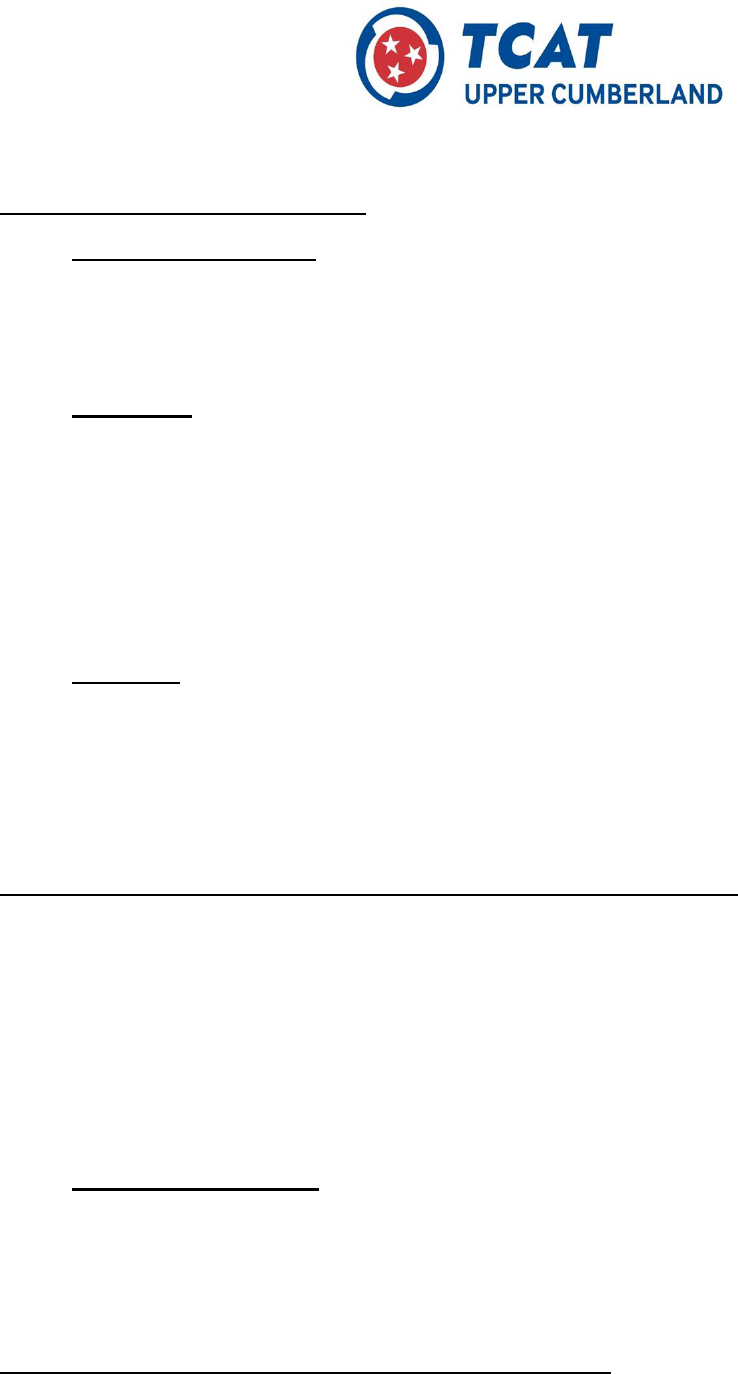
P a g e 14 | 47
PRACTICAL NURSING COURSE DESCRIPTIONS
1010 - Basic Nursing Principles:
Vocational Relations: This course is concerned with individual integrity as a basis for
adequate functioning as a practical nurse. Information throughout the course includes study
skills for the adult learner, nursing history, role and responsibility of the practical nurse, law and
ethics, communication, current nursing trends, employability skills, work characteristics and
orientation process.
Geriatrics: This class introduces gerontological nursing and the leadership role of the
practical nurse caring for older adults in long term care environments. The normal aging is
explored with emphasis on promoting, maintaining, and restoring health in older adults.
Besides the sociological, psychological, and physiological aspects of aging, this unit will also
incorporate the financial, safety, and pharmacological aspects of aging. The curriculum, using
the nursing process and basic human needs as a framework will integrate cultural diversity,
legal/ethical considerations, and the communication process to provide holistic care to the
geriatric client. Clinical experience will be afforded the student to allow them to use
observational, assessment and communication skills with the geriatric client.
Nutrition: Nutrition provides the practical student nurse with information related to the
fundamental principles of normal nutrition. Included in this course is a study of the basic
nutrients, food preparation and planning, alternate routes of nutrition, economic factors related
to essential nutrition and legislations pertaining to safe nutrition for the consumer. Nutritional
consideration of various age groups and different cultural backgrounds are also discussed.
The study of nutrition in relationship to disease will be addressed more fully in Medical-Surgical
Nursing.
1020 - Fundamentals of Nursing (includes Medical Terminology): Nursing Fundamentals is
concerned with the individual, the family, and community health. The course is the foundation for all
succeeding nursing courses. Application of skills and principles in caring for a wide variety of patients
will be stressed with emphasis of the comfort, safety, maintenance of health, and recovery of the
client. This course is directly related to A & P in helping the student distinguish between the normal
and the abnormal. Nursing Fundamentals is essential in order that the student recognizes that
nursing is a social discipline as well as stress the importance of the practical nurse as a member of
the healthcare team. A planned schedule of laboratory experience in simulated patient situations and
hospital environment is provided for the student to practice and demonstrate their skills before
exposure to the actual clinical setting.
Medical Terminology: This course is designed for students to enable them to acquire an
understanding of medical terminology. It provides the basic techniques of medical word
building. Once these techniques are learned they can readily be applied to acquire an
extensive medical vocabulary. There is no previous knowledge of Anatomy, Physiology or
Pathology necessary. The final course grade counts as a unit grade in Fundamentals of
Nursing.
1030 – Administer of Medication and Basic IV Theory: After completion of the math portion of this
course, the student will be able to perform accurate calculations of drugs and solutions. The
curriculum will stress how mathematics is important to the preparation and administration of
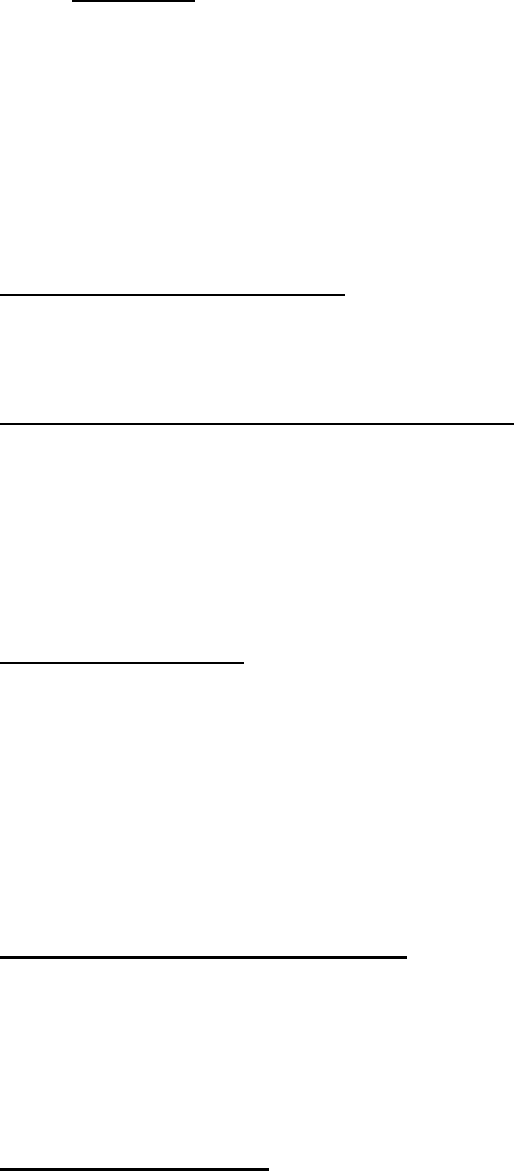
P a g e 15 | 47
medications. Math problems will progress from simple to more complex. A pre-requisite of the ability
to do basic arithmetic is needed. This includes the ability to add, subtract, multiply, and divide whole
numbers, as well as a review of fractions, decimals, percentages, ratios, and proportions. Other
topics include nursing skills relative to the safe administration of medications. Clinical laboratory
experience, prior to administration in clinical practice is offered for parenteral medications.
IV Therapy - The purpose of this course is to present the Practical Nurse the concepts
necessary to perform basic intravenous therapy, under the supervision of the RN/MD in a health care
facility. This includes peripheral venipuncture, and the administration of intravenous fluids and
medications by the guidelines set forth by the Tennessee State Board of Nursing. Topics included in
this course include: the role of the LPN in IV Therapy; venous system anatomy; legal and
professional issues related to IV Therapy; complications and nursing interventions for prevention;
knowledge of IV Therapy equipment, calculation of IV dosages and rates; and actions, usual
dosages, side effects, and other pertinent interventions regarding IV Therapy. Clinical laboratory
experience prior to IV administration to patients in their clinical practicum will be required. Theory 30
hours; clinical practicum 10 hours
1040 - Anatomy & Physiology: This course is designed to familiarize the student with the structure
and function of the human body as well as the interrelationships and interdependency of the body
systems to the maintenance of a homeostatic condition. The basic mechanisms of chemistry as well
as the effects of microbes on the human body will be included.
2010: Pharmacology I / Drug Classifications: The purpose of this course is to acquaint the
student with the basic knowledge in the science of pharmacology. Topics included in this course
include: the nursing process and its application to medication administration, and pharmacokinetics.
The students will also become familiar with drug classifications and the commonly given medications
that fall within these classifications (as well as their intended actions, side effects, and pertinent
nursing interventions in their administration) and focus on administration of medications to pediatric
and geriatric patients is also covered. Emphasis is also placed upon the practical nurses legal and
ethical responsibilities in the administration of medications.
2020 – Mental Health: This course is designed to give the student basic knowledge of normal and
abnormal behavior modes. Included in this course will be discussions concerning basic human
needs, emotions, normal personality development, communication process, and personality structure.
Exaggerated mental mechanisms, anxiety states and drug and alcohol will also be discussed, with
emphasis placed upon understanding the behavior of the patient and attempting to return the patient
to society while understanding the behavior of the patient and attempting to return the patient to
society while recognizing his limitations. Approaches, methods of treatment including drug therapy
will be explored. A portion of this course focuses specifically on the needs of the elderly population.
Clinical rotations will include practical experience in a mental health facility to provide the student time
to apply theory and principles in the care of the mentally ill.
2030 - Medical & Surgical Nursing I: This course will provide the student with knowledge of
disease conditions affecting the adult patient. This course covers the basic pathology, signs and
symptoms, incidence, diagnosis, treatment, and nursing interventions for selected disease conditions.
Clinical nutrition and clinical pharmacology are integrated into each unit. Special emphasis is placed
on the needs of the aging population. Clinical experience will be afforded the student to help the
student associate and apply theory and principles. These experiences will progress from simple to
complex.
2040 - Maternity Health: This course is designed to give the student a view of the patient as a family
member with emphasis placed on pregnancy as a normal state. The material will be presented in
chronological order from conception to birth. Abnormal conditions of pregnancy, their pathology,
signs and symptoms, incidence, prognosis, and treatment, and nursing interventions will be
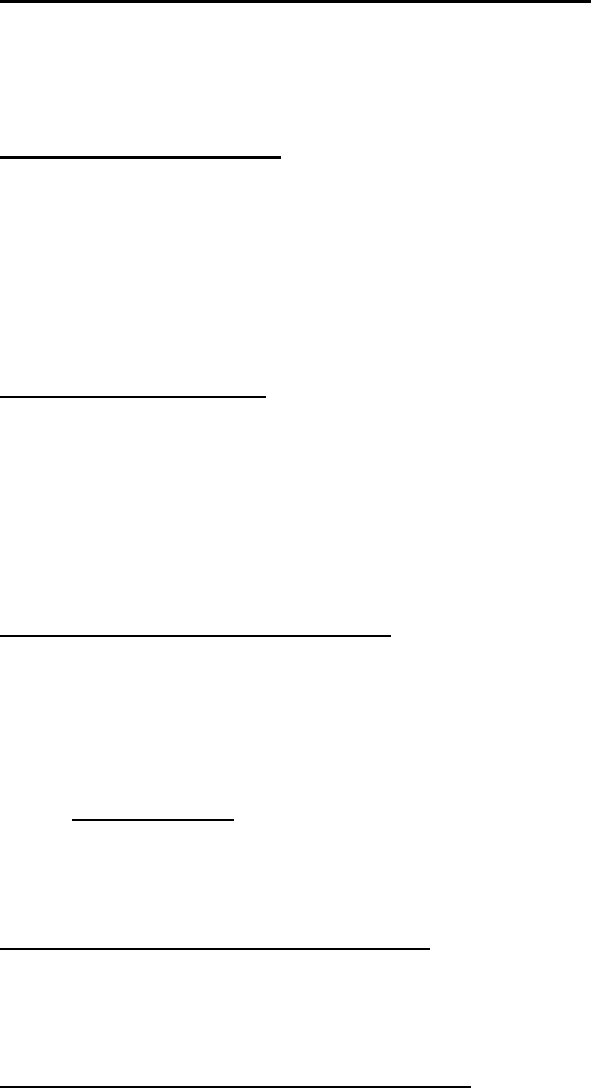
P a g e 16 | 47
presented. Correlated with this course will be clinical pharmacology and clinical nutrition. Clinical
rotation will include practical experience in labor and delivery, post-partum, and newborn nursery to
provide the student the ability to apply theory and principles in the care of the obstetrical patient and
newborn.
3020 - Advanced Professional Vocational Relations: This course includes the characteristics
necessary for a successful transition from student to LPN. The course is designed to assist the
student in employability skills including completing job applications, preparing for the job interview,
and writing a resume. The course also focuses on leadership skills, positive work habits, attitudes,
and worker characteristics.
3030 - Pediatric Nursing: This course is designed to provide basic information to the practical
nursing student about the physiological differences and developmental stages in children. It also
encompasses the various pathological conditions and disorders of childhood and respective
treatments. Knowledge of the various states of growth and development from infancy to adolescence
is important for proper nursing care of the pediatric patient. A holistic approach is utilized by
encompassing family-centered care, along with psychosocial and physical well-being, like that of the
adult medical-surgical patient. Pediatric clinical experience will be included for each student during
their clinical rotations.
3040 – Pharmacology II The purpose of this course is to acquaint the student with the basic
knowledge of the science of pharmacology. Topics included in this course include: the nursing
process and its application to medication administration, and pharmacokinetics. The students will
also become familiar with drug classifications and the commonly given medications that fall within
these classifications (as well as their intended actions, side effects, and pertinent nursing
interventions in their administration) and focus on administration of medications to pediatric and
geriatric patients is also covered. Emphasis is also placed upon the practical nurses legal and ethical
responsibilities in the administration of medications.
3050 – Medical & Surgical Nursing II This course will provide the student with knowledge of disease
conditions affecting the adult patient. This course covers the basic pathology, signs and symptoms,
incidence, diagnosis, treatment, and nursing interventions for selected disease conditions. Clinical
nutrition and clinical pharmacology are integrated into each unit. Special emphasis is placed on the
needs of the aging population. Clinical experience will be afforded the student to help the student
associate and apply theory and principles. These experiences will progress from simple to complex.
NCLEX Prep This course focuses on preparing the student to take the National PN Exam.
Students will test, as well as remediate, using a 24-hour access web-based company and
critical thinking techniques in the classroom and lab. Included in this course is a State Board
Review.
1050, 2050, 3010 – Clinical Practicum: Clinical rotations will include practical experience in a variety
of settings including but not limited to: medical surgical nursing, maternal/newborn care, pediatrics,
and mental health. This experience allows the student to incorporate theory and principles in the
clinical setting.
0001,0002,0003 – Worker Characteristics: Students will receive a grade in Worker Characteristics
each trimester. The goal of this course is to improve the essential worker characteristics of students
in preparation for entrance into the workshop upon completion of the program. The course is based
around the ten traits that have been identified as being needed to foster positive work habits. These
include:
1. Attendance
2. Character
3. Teamwork
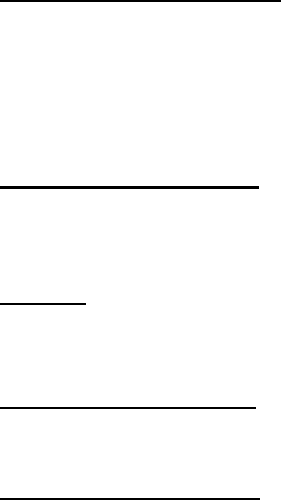
P a g e 17 | 47
4. Appearance
5. Attitude
6. Productivity
7. Organizational Skills
8. Communications
9. Cooperation
10. Respect
GENERAL INFORMATION: CURRICULUM, INSTRUCTION & EVALUATION
Curriculum Organization: The faculty of the TCAT Upper Cumberland and TCAT- Livingston PN
Program work collectively when planning course structure. The instructor scheduled to teach a
course is primarily responsible for organizing, implementing, and evaluating the course. Development
of the curriculum is also a joint effort of the Health Education Coordinator and instructors in
accordance with the philosophy of TCAT, the Tennessee Board of Nursing, Tennessee Board of
Regents, and COE accreditation standards.
Curriculum Instruction: Methods: lectures, discussion, demonstrations, audiovisuals, handouts,
study guides, reading assignments, written assignments, field trips, seminars/workshops, computer
software applications, simulated scenarios, online research.
Clinical: Students will be assigned to patients by the instructor and be directly responsible for
keeping the nursing staff informed concerning the patient’s condition. Clinical learning experiences
will be assigned based on course content previously learned and individual needs of the student.
Curriculum Evaluation: Objective tests, oral quizzing, written assignments, return demonstrations,
computer testing & clinical simulation.
COMMUNITY SERVICE
Students are expected to participate in available health related in-service education programs and
engage in community health promotion and volunteer activities. Instructors will recommend activities
as they become available. All students are expected to participate and show proof of a minimum of 2
activities before the end of the year.

P a g e 18 | 47
National Technical Honor’s Society (NTHS)
NTSH mission is to recognize student achievement and leadership in career and technical education,
promote excellence, award scholarships, and enhance student career opportunities. Its core
attributes for membership include leadership, scholarship, skills, honesty, citizenship, service, and
responsibility. NTHS helps its members to seek education, provide leadership skills, build career
portfolios, connect with members of their professions, and engage in community service.
Student membership occurs with the recommendation for application by the program instructors. At
the end of each trimester (there are three trimesters in this course of study) your instructor will make
recommendations for the NTHS. These recommendations are guided by the NTHS –TCAT Upper
Cumberland and TCAT- Upper Cumberland @ Livingston standards and must be maintained throughout
the program (each semester) to retain NTHS membership.

P a g e 19 | 47
TCAT PN SAFETY CHECKLIST
1. In emergencies, the student exits from the classroom using identified routes of exit.
a. If exiting in response to alarm or disaster leave all personal items
2. First Aid kit (location)
3. Body fluids/blood spill information (kits are in instructor’s office
4. Fire extinguisher location and use.
5. Fire alarm sound and student response.
6. Tornado Warning
a. Tornado alarm sound.
b. Exit to designated shelter/area taking no personal belongings.
c. Shelter in women’s bathrooms (TCAT Upper Cumberland/TCAT- Upper Cumberland @
Livingston) CHEC – PN classroom.
d. Students may exit with the “all clear” signal.
7. Lock-Down Drill /Alarm
a. Lock-Down drills are a means of practicing preparedness in schools/businesses in the
event of an intruder or criminal act or terroristic attack.
b. An announcement will be given that the school is going on an immediate lockdown.
c. All occupants present at the time of the drill go to a designated room and lock all doors
and windows tightly.
d. Lock down is enforced until an “all clear” signal is issued.
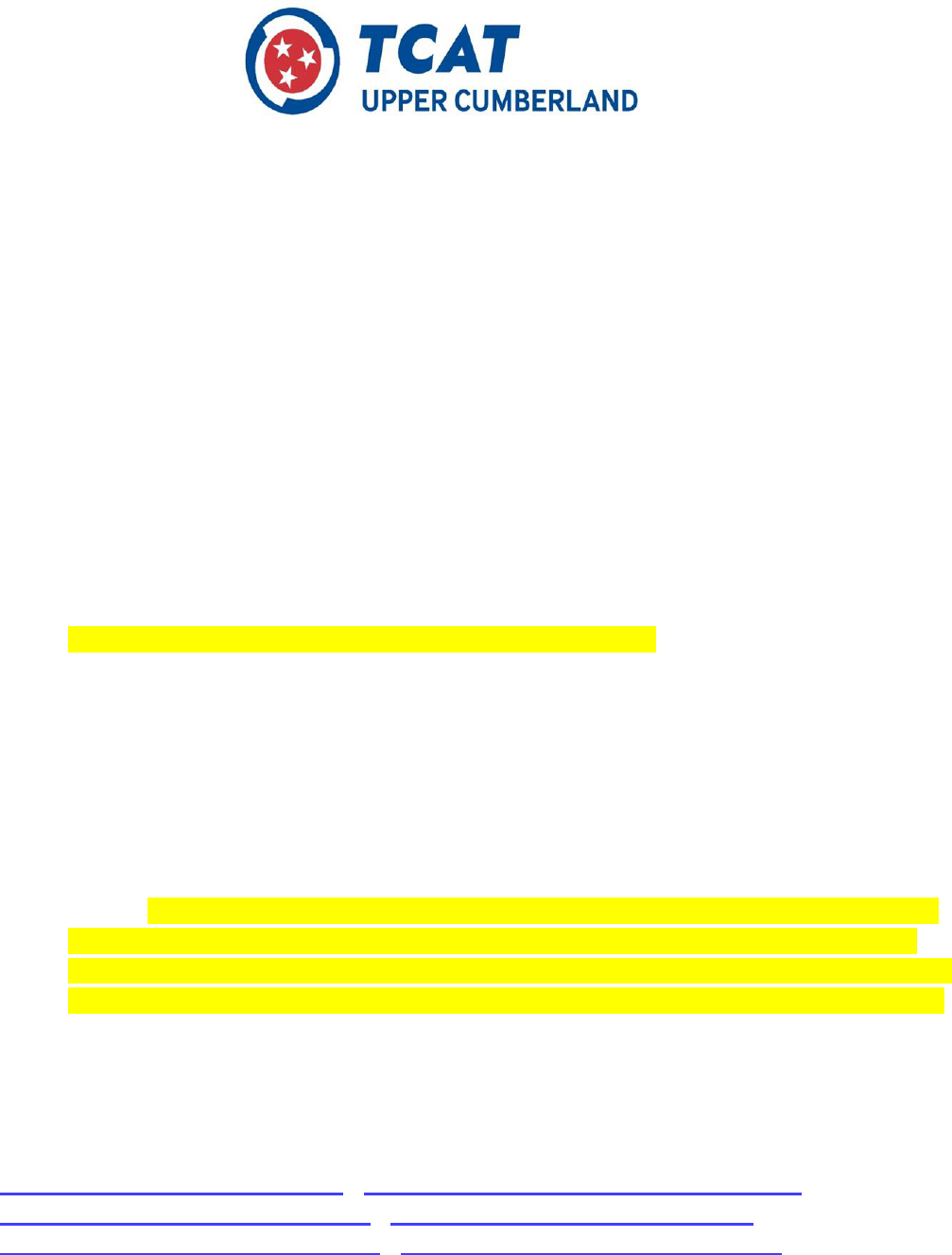
P a g e 20 | 47
ATTENDANCE
When a full-time student enrolls for a full term (72 days) and has absences exceeding 9.7% (42
hours) of the scheduled hours enrolled, that student will be suspended (Academic retention and
readmission at Tennessee Colleges of Applied Technology: 2:03:01:05).
Definition to a tardy:
o A student is considered tardy if not in the classroom at the designated time for class to
start at any time during the day – start, breaks, and lunch
o Coming into class late at any time.
Multiple episodes of being tardy will result in the following discipline (see clinical attendance for its
specific policy):
1. Five (5) Tardies – Student will be given a written warning by the instructor.
2. Six (6) Tardies – Student will be placed on probation by Student Services.
3. Seven (7) Tardies – Student will be referred to the president and will be terminated
by the president of the college or the president’s designee.
*When a student misses three (3) consecutive days without contacting the college, that student will
be presumed to have withdrawn from the College. (Academic retention and readmission at
Tennessee College of Applied Technology: 2:03:01:05).
• Notification of absence/tardy, must be made in accordance with the following rules:
o Notification of classroom absence must be reported by 0845, if not this will result in a
one-point deduction per occurrence in workers characteristics final grade.
o Clinical/Class absence must be phoned in 30 minutes prior to scheduled
assignment start time (call the facility and instructor) and leave a message at the
school- TCAT Upper Cumberland (931-403-3117 or TCAT Livingston (931)823-5525.
Repeated incidences of no call no show will result in disciplinary measures for
class/clinicals. Failing to call in clinical/class absence according to this policy will
result in a zero (0) clinical grade for the day, and possible disciplinary measures.
o When a student misses three (3) consecutive days without contacting the college,
that student may be presumed to have withdrawn from the college.
• It is best to leave a message or speak with a Health Education instructor when calling in your
absence: (931)403-3119/3117-Instructor Office) or call (931)823-5525 TCAT- Livingston or
TCAT Upper Cumberland (931)444-1328. It is best to email your instructor:
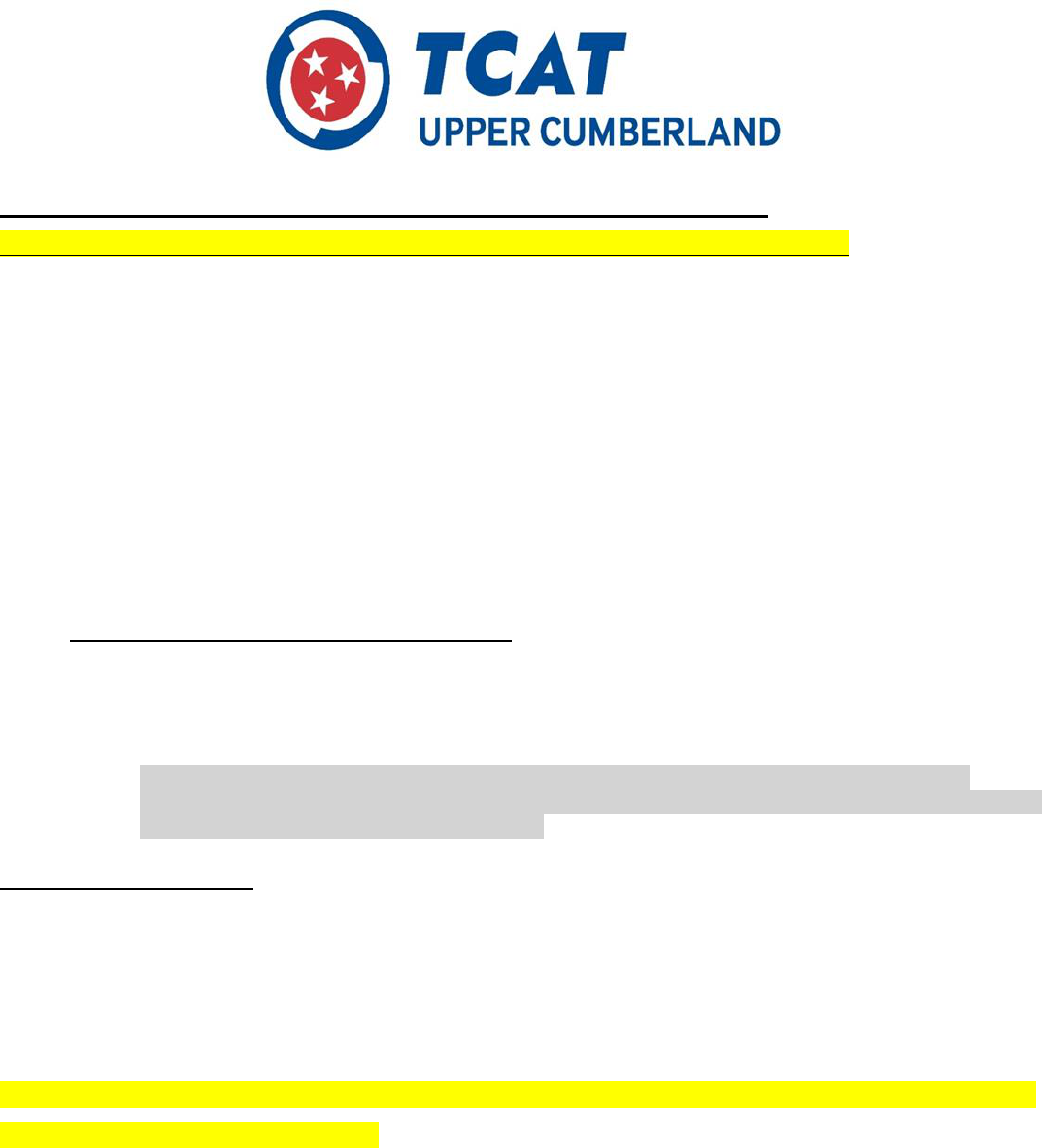
P a g e 21 | 47
STUDENT PERSONAL / CLASSROOM / CLINICAL RESPONSIBILITIES
The following violations may result in disciplinary action, or course grade reduction
• Failing to complete assignments as instructed (includes classroom and clinical assignments,
etc.)
• Disruptive Behaviors
o Disruptive during class (sleeping, or excessively exiting classroom before scheduled break
times, noise interruptions, authorized computer use, cell phone use) will result in
disciplinary action.
• Violation of other TCAT Policies/Administrative/ Student Services / Financial Aid
Request/ etc.
• Patient privacy, confidentiality
o Violation of HIPAA
o Violation of Privacy
• Unprofessional behavior and misconduct in clinical practice.
• Cellphone, smart watch, electronic devices
o Use of cell phones/or other electronic devices is strictly prohibited in the classroom or
during clinical practicum (lecture, testing), unless permission is granted by the
instructor.
o Classroom – a warning will be documented with the first infraction. With subsequent cell phone
violations, the student will be suspended for one day.
o Clinical –Personal possession/use of cell phone while in clinical assignment will result in
suspension for the first offense; referral to the director and/or president for any further violations
and may result in expulsion of the program.
Professional Etiquette:
• Appearance (inappropriate dress, grooming, and hygiene for assigned areas)
• Behavior (not maintaining positive, respectful attitude, handling criticism/conflicts appropriately or
repeatedly displaying disruptive, immature behavior)
• Repeatedly showing a lack of initiative and self-motivation
• Communication (not using appropriate verbal/nonverbal skills, disturbing others with excessive talking
or using foul/offensive language)
Students face immediate removal from class/clinical and disciplinary action for insubordinate
or grossly inappropriate behavior.
Students will be called in for counseling as needed to warn about behaviors and attendance issues.
Students will initial on the form as evidence of counseling.
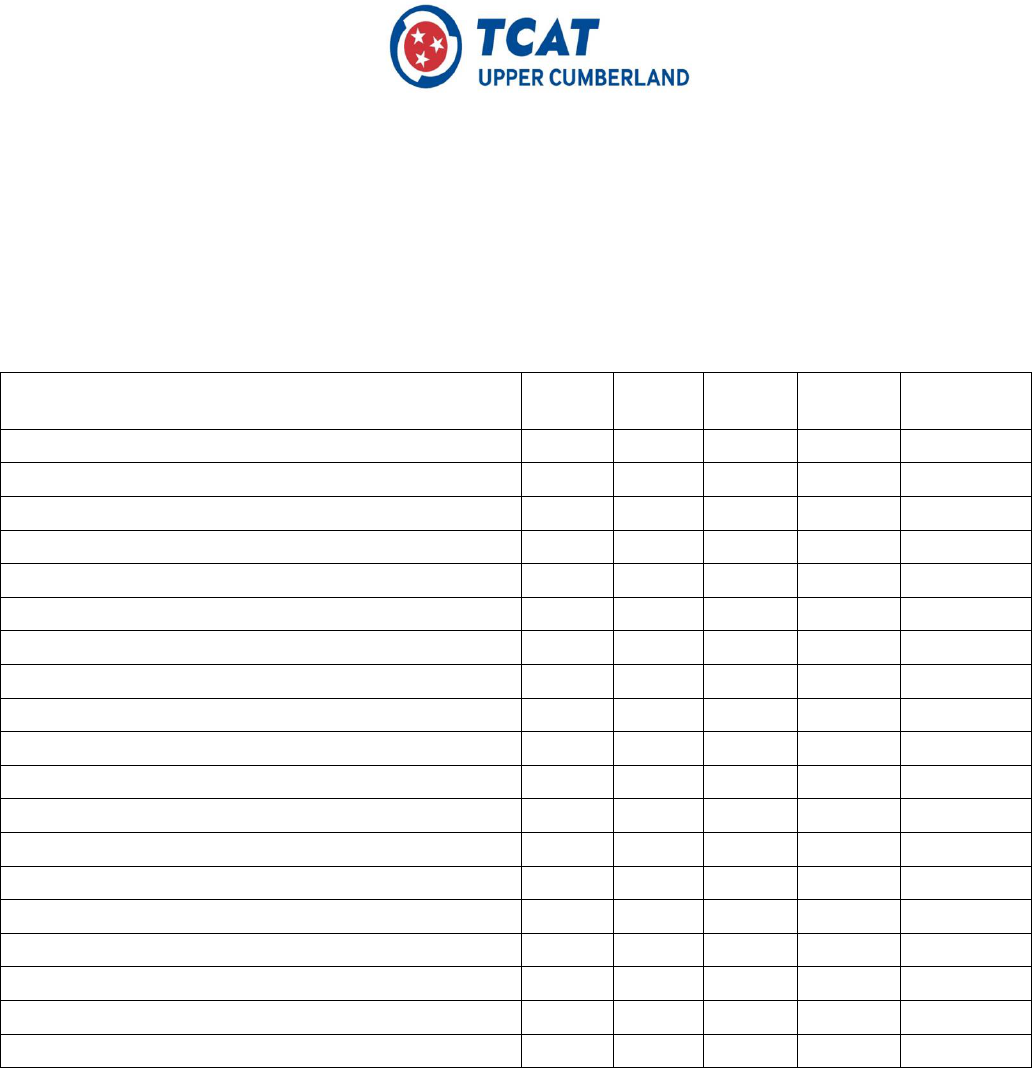
P a g e 22 | 47
Student Name ____________________ Student # _________________ Term ________ 20_____
Program ____________________ Enrollment Date ___________ Graduation Date __________
Previous Hours ___________ Current Hours _________ Cumulative Hours ________
Grading Scale: CONT = Not Complete, A = 100 – 90, B = 89 – 80, C = 79 – 70, D = 69 – 60, F = Below 60
Grading Scale Allied Health and TDP: CONT = Not Complete, A = 100 – 90, B = 89 – 80, F = Below 80
Progress
Course
Skill
Grade
Theory
Grade
Course
Grade
Course
Hours
Last Date of
Attendance
_______ Trimester Average
Student Signature __________________ Date _____ Instructor Signature __________________ Date ______
Final Trimester Evaluation
TCAT – Upper Cumberland is an AA/EEO employer and does not discriminate on the basis of race, color, religion, creed,
ethnic or national origin, sex, sexual orientation, gender identity/expression, disability, age (as applicable), status as a covered
veteran, genetic information, and any other category protected by federal or state civil rights law with respect to all
employment, programs and activities sponsored by the College. Inquiries or complaints concerning Title IX and/or the Title
IX regulations may be referred to the College's Title IX coordinator 24/7 in person, by phone, and/or email at: Jeffrey Slagle
Title IX Coordinator, TitleIX@tcatuppercumberland.edu 740 Hi Tech Dr Livingston, TN 38570 (931) 823-5525.
Student Services | TCFRS May 30, 2024
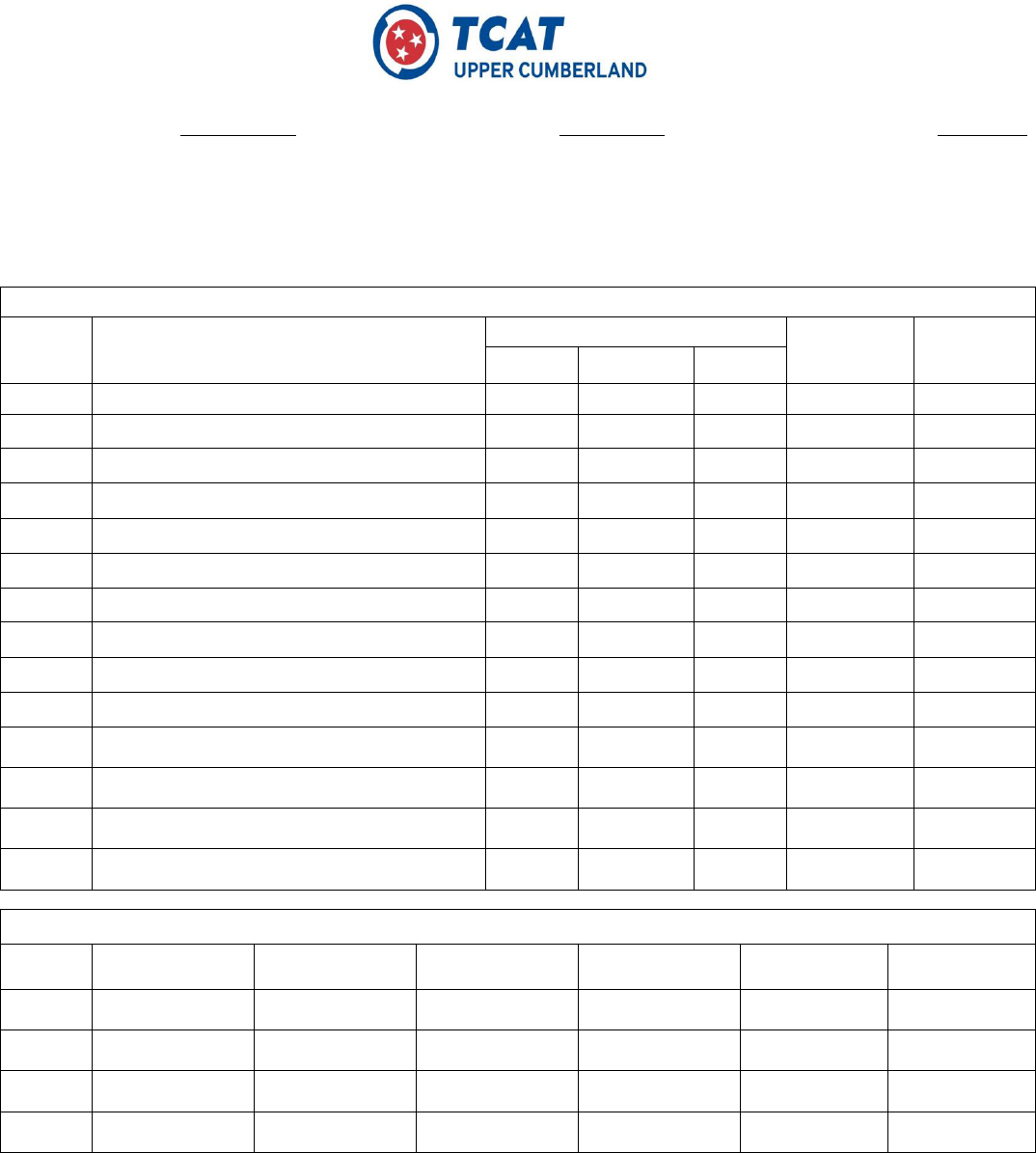
P a g e 23 | 47
Hours registered are
_____ Absent hours 9.7% _______ Counseled hours 5.5% ____
Absent policy – When the student exceeds 5.5% absent hrs., the student reports to student services.
When the student exceeds 9.7% absent hrs., the student reports to an administration.
Tardy policy – If Student receives 5, warning from the instructor; 6, contact student services; 7, referred to an administration
ATTENDANCE
SUMMARY OF ABSENCES
Date
Reason for Absence
Time Lost
Cumulative
Time Lost
Student’s
Initials
Tardy
Left Early
Other
ACTION TAKEN
Date
Warning
Probation
Referred for
Counseling
Suspended
Student’s
Initials
Instructor or
Admin. Initials
Student Signature _________________Date _____ Inst./Admin. Signature _________________ Date ______
Counseling
Student Signature ________________ Date _____ Inst./Admin. Signature _________________ Date ______
Counseling
Remarks:
Student Services | TCFRS May 30, 2024
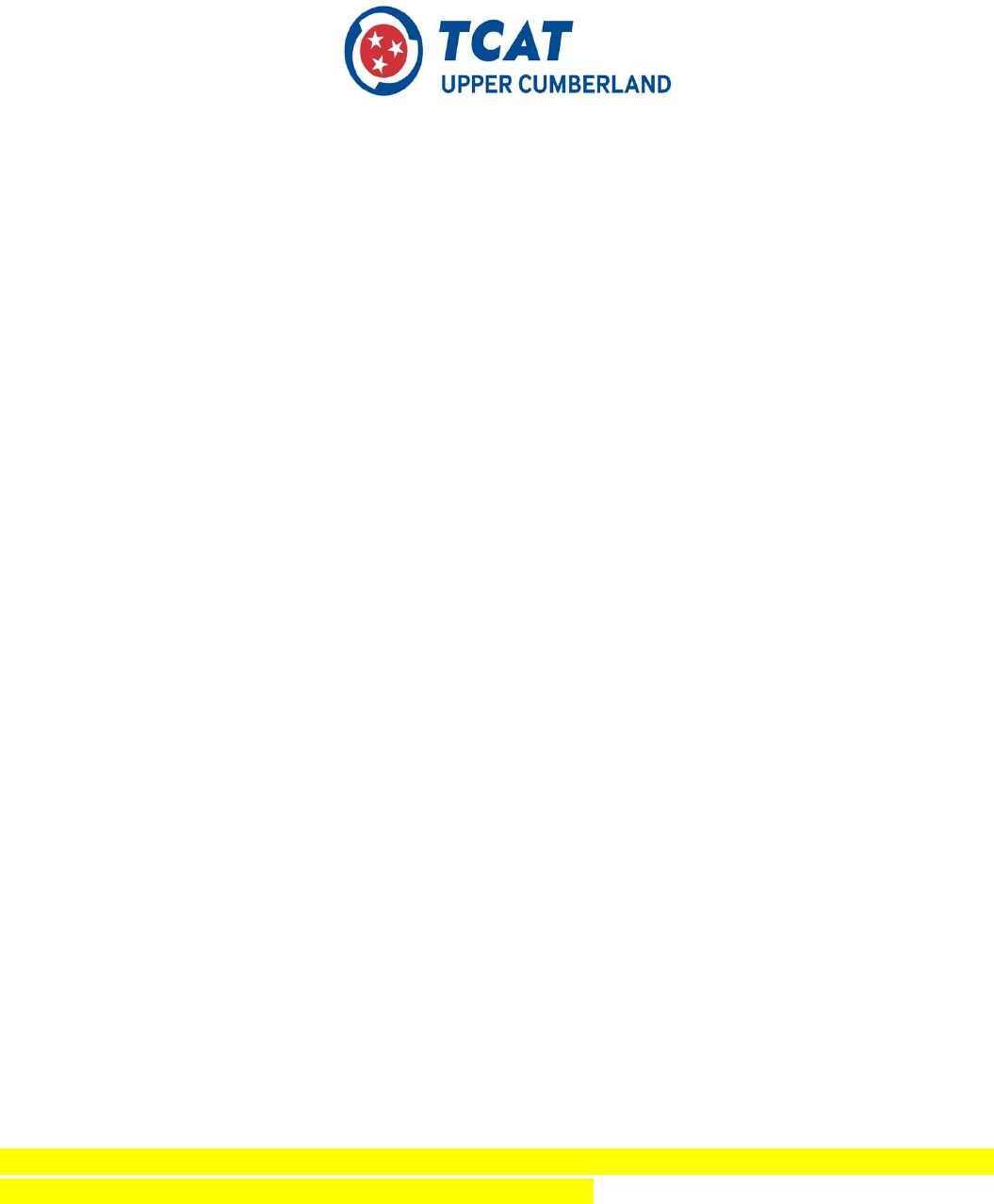
P a g e 24 | 47
ATTENDANCE
Students at TCAT Upper Cumberland and TCAT Livingston are expected to maintain
satisfactory attendance and to progress in an appropriate manner toward their training
objectives. The nature of the programs at the Tennessee Colleges of Applied Technology is such
that it is necessary for every student to attend regularly. Excessive interruptions due to absences will
have an adverse effect on student progress.
1. A full-time student enrolled for a full term (72-days) and that has been absent for more than
5.5% (24 hours) of the scheduled hours enrolled will receive written communication alerting the
student to the number of hours remaining prior to suspension. Available community and
institutional resources will be shared to assist students with attendance issues. The number of
hours of absence triggering notification must be prorated for all part-time students and full-time
students enrolled for less than a full term.
2. When a full-time student enrolls for a full term (72) days) and has absences exceeding
9.7% (42 hours) of the scheduled hours enrolled, that student will be suspended. A
student suspended for attendance may appeal the suspension in writing to the president within
three (3) days of receiving notification of the suspension. A student appealing suspension of
attendance may remain in class until the suspension has been reviewed. The number of hours
triggering suspension must be prorated for all-part-time and full-time students enrolled for less
than a full term.
3. A student is considered tardy if not in the classroom at the designated time for class to start
(including breaks and lunch). Multiple tardies will result in the following discipline:
a. Five (5) tardies – Student will be given a written warning and counseled by instructor.
b. Six (6) tardies- Student will be placed on probation by the president or the president’s
designee.
c. Seven (7) tardies – Student will be referred to the president and will be terminated.
4. An attendance record for each student shall be maintained in the student information system.
5. When a student misses three (3) consecutive days without contacting the college, that
student will be presumed to have withdrawn from the college.
Any student who leaves before the end of the school day should first sign out with their
instructor. Students who fail to sign out may be dismissed from the program. Hours from
signing out will be counted as absence hours and this will be reflected on the Worker Characteristic
Grade.
PN Faculty can require additional coursework for absenteeism. Failure to turn in by due date
will be reflected on student worker characteristic grade
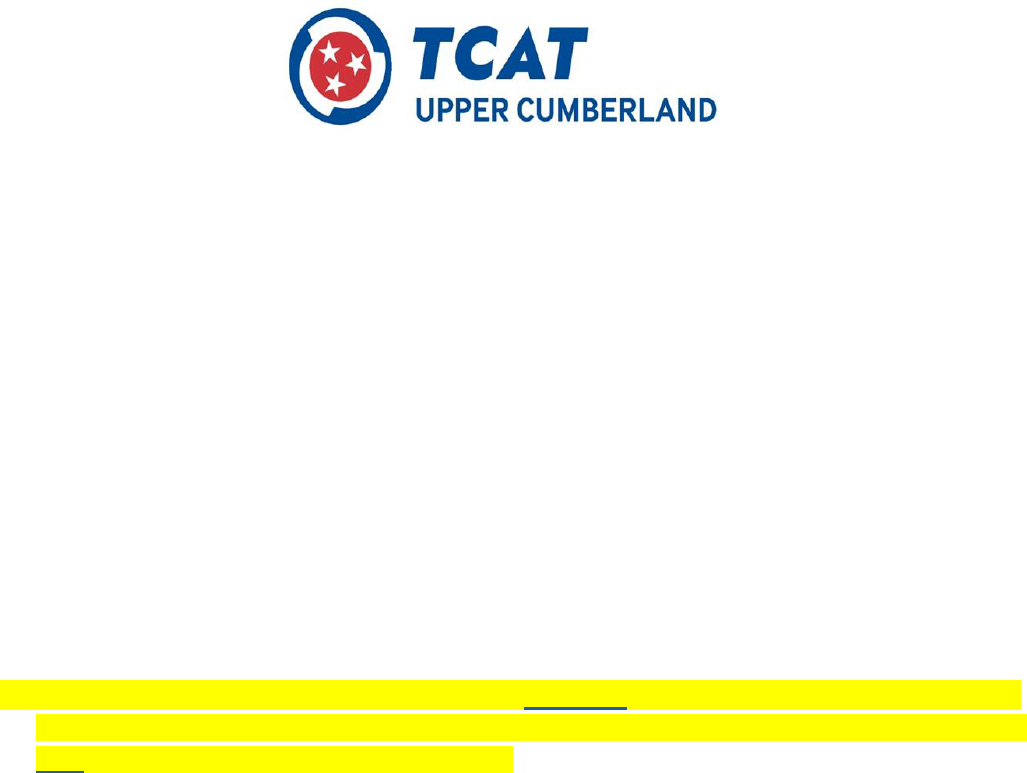
P a g e 25 | 47
CLINICAL ATTENDANCE /GRADE POLICY –
Clinical experience is a major part of the TCAT Upper Cumberland and TCAT - Livingston PN
Curriculum. Without adequate clinical training success in the program is not likely. Nurses
must be able to relate theory and clinical to be successful on the NCLEX Exam. The faculty
expect the student to be responsible and avoid absenteeism during clinical. If excessive
clinical absenteeism exists, the faculty may require additional assignments. Clinical hours
missed will be reflected in job references as well as period evaluations.
• Clinical practice Grade Policy – Clinical attendance is essential for each student to practice
skills and provide appropriate care for patients/clients/residents. Missing clinical practice
hours, as stated above, may prevent the student from receiving their diploma or becoming
eligible for licensure by the State Boards of Nursing. Students will receive a weekly clinical
evaluation grade. Rubrics will be supplied by the instructor. Any clinical absence will result
in a zero (0) for that clinical day. A clinical absentee will result in a zero (0) for each 9
hours missed. Leaving early or being tardy will also result in an unsatisfactory clinical
evaluation, depending upon the circumstances. See clinical grade sheet example on pp. 38.
For further explanation please see Clinical I-III syllabi.
• Notice of clinical absence must be reported “prior to” the scheduled starting time and date,
usually 0700. If a student is in a rotation where an instructor is not present, the student must
also call the facility to report the absence.
• Clinical Attendance Forms must be completed (front and back) and signed by staff at
the clinical facility. These forms must be turned into the instructor at the beginning of
the next class day. Failure to provide Clinical Attendance Forms will result in 0 hours
for the clinical day. Late clinical forms will result in a 25-point deduction.
• If you cannot make it to the assigned clinical site within 30 minutes of start time, you will
be given an absence of 9 hours (facilities expect that we are taking care of the patients
assigned at start of the shift). In the event of adverse weather or extenuating circumstances,
PN Instructors may make exceptions to the 30-minute policy above.
• A student is considered tardy if not in the clinical area (reporting to instructor) ready to work at
the designated time including returning from break and lunch.
• As clinical practice hours are determined by State Boards of Nursing (BON), delays in
licensure application may occur until those requirements are met.
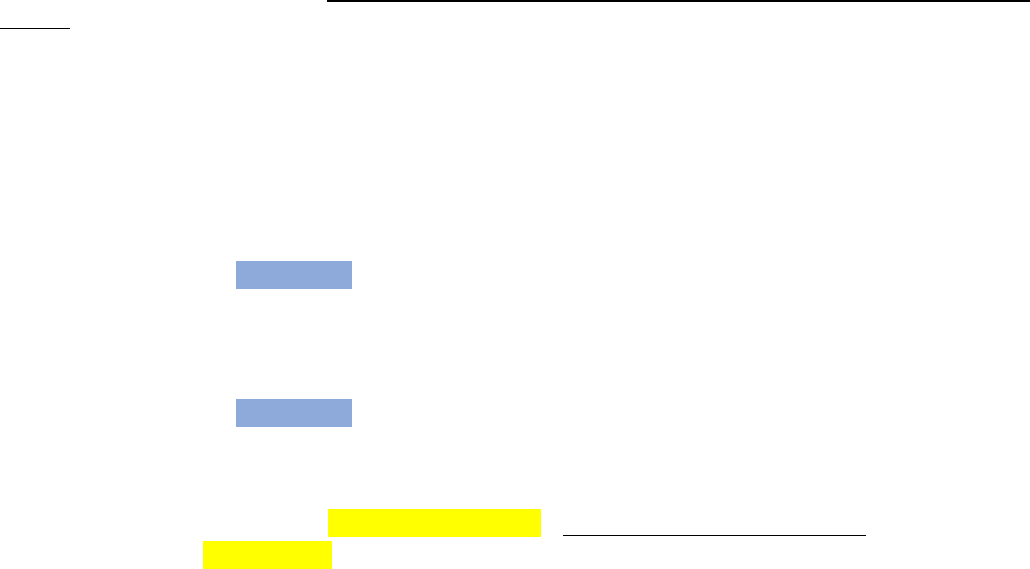
P a g e 26 | 47
CLASSROOM DRESS / HYGIENE
• Healthcare professionals are expected to be neat and clean always. This includes personal
hygiene, offensive odors, soiled shoes, clothing, and personal belongings.
• Student identification badges must always be worn while on campus and in clinical sites.
• Neat, Clean scrub uniforms will be worn in the classroom setting. In class, the student may
wear pattern or color of their choice, excluding obscene or offensive. Students may also wear
a t-shirt or sweatshirt (appropriate for class) and scrub bottoms.
• Undergarments / gluteal cleft should not be visible at any time (this includes pants with holes).
Attire should fit appropriately and not form fitting.
• Hemlines on pants should not touch the floor when the individual is standing.
Seminar / In-service Dress Code:
• Scheduled in-services are mandatory for students.
• The costs for attending educational seminars are each student’s responsibility.
• The dress must be appropriate to the professional atmosphere.
• No facial piercings, tattoos must be covered.
UNIFORM DRESS CODE
Nursing Students must purchase uniforms and supplies which meet TCAT-Upper Cumberland and
TCAT - Livingston guidelines. Each student will be personally responsible for payment of uniforms/supplies to the place of
business they purchase from. If a student receives financial assistance from an outside party, they
must meet with the financial aid coordinator in student services to discuss further payment methods.
It is not necessary to purchase uniforms prior to enrollment. Instructors will give a deadline of
when uniforms must be purchased after school starts.
The following will be required prior to the first day of clinical and must meet or exceed the following
criteria:
❖ Nursing Uniform Tops – total of 2
• Must be Royal Blue Color
• Short Sleeves or ¾ length
• Minimum of 2 pockets
• Recommend 65% Polyester / 35% Cotton Fabric for durability.
❖ Nursing Uniform Pants – total of 2
• Must be Royal Blue Color
• Professional nursing uniform pant (no leggings, low rise, or thin, lightweight scrubs)
• If preferred, females can wear a Royal Blue professional uniform knee-length dress or
skirt along with the Royal Blue Uniform Top (hose required)
❖ Scrub Jacket/lab coat – Royal Blue or White (“hip-length with long sleeves”) banded cuffs are
acceptable (OPTIONAL)
Shoes – Must be clean, closed toe shoes only.
❖ Bandage scissors (5 inch recommended) – in skill supply bag.
❖ Stethoscope with NO cloth covers allowed.
❖ Blood Pressure Cuff (optional)
❖ Watch with a second hand (no smart watches) (should be waterproof)
Uniform Appearance:

P a g e 27 | 47
• Students will wear white/skin tone undergarments underneath white pants/dress, thong
underwear not allowed.
• If a long sleeve shirt is worn under the ceil blue scrub top, it must be solid white/gray (no
quilted thermals allowed)
• Must wear a regulation student identification badge or hospital identification badge if
applicable.
• All students are expected to carry required equipment in clinical rotations (if they do not have
proper equipment this could result in failure for the day and sent home)
• White/Royal Blue lab coat may be worn with uniform, it must be worn over street clothes if
student must be in clinical area for any reason other than scheduled clinical rotations, failure to
do so may result in disciplinary action.
• Hair neat and away from face, long hair pulled back, restrained and off the collar; hair
should never fall over shoulders toward chest when leaning forward; beards and/or mustaches
must be neat and trimmed; minimal make-up; no facial piercing allowed in clinical; all tattoos
must be covered while in the clinical
• Jewelry limited to: wristwatch, wedding and/or engagement rings, one pair of small stud
earrings, and one small chain necklace (must be kept inside under collar of uniform); no large
holiday pins or accessories.
• You must wear a picture ID, student name tag while in the clinical practice.
• Shoes clean, polished, with clean shoestrings.
• The footwear must include socks with scrubs and hose with dress.
• Uniform wrinkle free & hose free of runs
• Pant hemlines should not drag the ground.
• No perfume or cologne
• No smoking or use of any tobacco products while in uniform prior to start of clinical day or
during clinical day. Uniform clothing must be fresh without the odor of smoke.
• Fingernails clean, short, nail polish clear or pale pastel only; no acrylic nails.
• Tongue, nose, lip, facial, or other piercings (other than a single pair of earrings on ear
lobes) must be replaced with a clear spacer while in clinical.
• No visible tattoos. Tattoos are to be always covered in clinical areas.
• Students are expected to change out of school uniform before going out socially.
• No cell phones are permitted in any clinical areas regardless of if they are on your
person or not. CELL PHONES ARE NOT ALLOWED IN CLINICAL AREA. LEAVE THEM IN
YOUR CAR!
• Good personal hygiene and good grooming are very important in every area of the
organization.
Violation of Uniform Policy may result in students being sent home (with absence time
accrued) and point deduction in worker characteristics.
At the instructor’s discretion, the student, if inappropriately dressed whether in clinical,
classroom, or seminar, may be sent home. This will be reflected in the loss of hours and worker
characteristics point deductions.
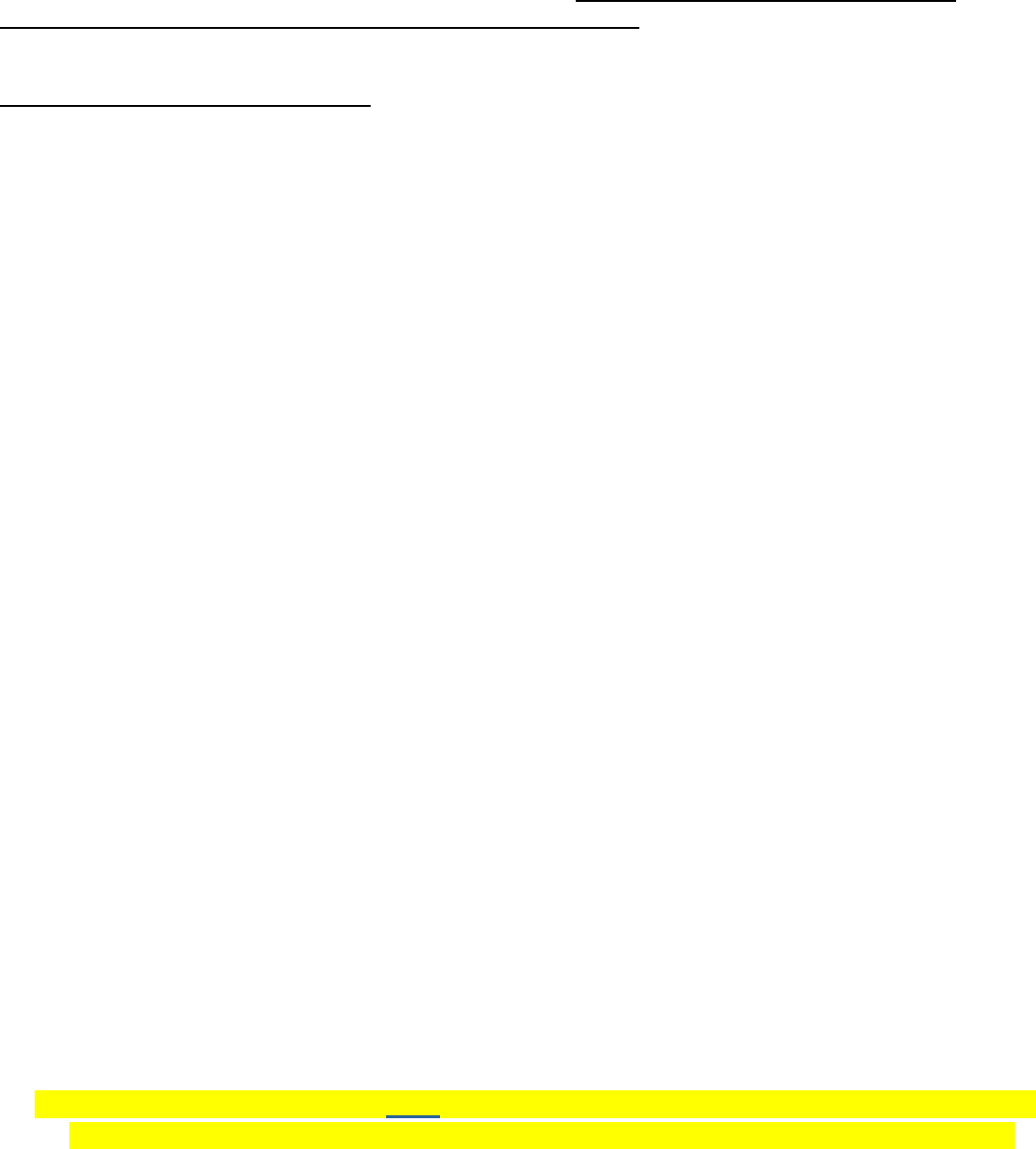
P a g e 28 | 47
POLICY ON CONDUCT
Students are expected to abide by the policies set forth. Any policy violation or unprofessional
conduct may be reason for automatic dismissal or suspension at the discretion of the School Director
or Assistant Director (Administrative person in charge).
Under The Influence of A Substance:
Student may incur disciplinary action for the following:
• Being under the influence of, having possession of alcoholic beverages, or under the influence
of drugs which impair judgment while assigned in clinical practice at any health care facility,
during school, or while acting in the role a practical nursing student.
NOTE: Students may be requested to submit to a urine drug screen at the request of a clinical
affiliate at the cost of the student.
At this request, students will be given the location of approved vendors and a deadline date and time
to have the specimen collected. Failing to meet this deadline will result in termination from the
program. Students must follow the approved vendor’s policy for collecting the specimen.
• The Laboratory Medical Review Officer (MRO) will contact only students with positive drug
screens to confirm a valid prescription exists.
• Prescription medication should not be over one year old; it is recommended that you visit your
doctor and get updated prescriptions for all the prescribed medications you take.
• If MRO is unable to validate a legal prescription exists, the screen will be reported as positive
to the clinical affiliate and the student would not be able to obtain required clinical hours
resulting in failure of the course.
• Any student testing positive will not be eligible for re-enrollment for at least 5 years.
• If a screen result is inconclusive, the test must be repeated at the student’s expense.
• Payment for all screens will be the students’ responsibility. Payment will be made at the time of
collection to the Vendor chosen by the student from the supplied Vendor list
PRACTICAL NURSING EXAMINATION POLICY
• Academic Dishonesty: plagiarism, cheating (including possession of unauthorized
testing material during exam, electronic devices, more than one browser open & etc.),
and other forms of academic dishonesty are prohibited. Student guilty of academic
misconduct, either indirectly or directly, thru participation or assistance, are
immediately responsible to the instructor of the class. Disciplinary actions may include
receiving a zero “0” on the exam, suspension and/or dismissal from the program.
• Objective tests will be given at the completion of each unit in a course; most are offered in a
computerized format.
• A final exam will be given at the end of each course.
• On exam days, if necessary, only a writing utensil should be brought into the classroom
(all personal items including purses, coats, textbooks, etc… should remain in lockers)
• Instructor has the option of how to administer the exam (written, computerized, etc…)
• Student will use the following time schedule in regard to scheduled test time allowance
for exam completion (the time may change at the instructor’s discretion).
❖ 50 question tests = 1 hour
❖ 33 question tests = 45 minutes

P a g e 29 | 47
❖ 100 question tests = 2 hours
• Since questions are not allowed during the NCLEX-PN, students will not be allowed to
ask questions regarding exam content.
• When paper/pencil exam is given:
▪ Students may receive an answer sheet, cover sheet, and test booklet.
▪ Students will write name, student number, date, & test name on answer sheet as
directed.
▪ Only blue/black ink or pencil allowed, point deduction may result if another color is used.
▪ Points may be deducted if students fail to cover the answer sheet.
▪ No marks should be made on the test booklet unless instructed otherwise.
▪ Any scratch paper used will be turned in at the end of the exam.
▪ Removal of any test material from the room will result in disciplinary action.
▪ Upon completion, students will turn in test booklet, answer sheet, and any scratch paper
and return to their seat.
• When computerized testing is given:
▪ Student will log into D2L (learning management system) and begin testing when
instructed.
▪ It is the students’ responsibility to remember log in username and password.
▪ Failure to remember username and password may result in deduction of points.
▪ It is recommended you save answer after each question.
▪ If a technical problem arises during the exam, students should raise their hand and wait
for instructor’s assistance.
▪ Upon completion, students will remain quietly in their seat.
▪ Grades will be available at the end of the test or by end of day if possible.
Students are not allowed to copy any test information in any way, shape, or form
• STUDENTS WILL NOT BE ALLOWED TO EXIT THE ROOM DURING A TEST UNLESS IT
IS AUTHORIZED BY THE INSTRUCTOR
• Student progress in any course will be evaluated mid and at the end of course. Students will
be counseled if GPA is less than 84% mid-course of any class. (revised 05/16/2019)
• Examinations may be made up if a student misses the scheduled test times after school hours.
• Unit examinations missed due to absence or tardiness will be made up within 7 calendar days.
It is the student’s responsibility to meet with the course instructor and schedule a makeup
examination. The make-up examination will cover material addressed in each unit but will not
be in the same format. Make-up examinations may be written in essay or fill-in-the-blank
format.
Tests may be made up with the permission of the PN faculty and director, if missed due to
suspension or other forms of disciplinary action, but a different exam may be given and 80%
will be the highest grade possible
• All unit test must be completed prior to taking the final examination.
• In the case of absence during a scheduled final examination, the faculty will require official
documentation be brought in to explain the urgency of the absence.
• If the final must be taken late because of above reasons, a different final exam may be given.
P a g e 30 | 47
TCAT-Upper Cumberland and TCAT - Livingston PN COMPLETION REQUIREMENTS AND
GRADUATION CRITERIA
To graduate from the TCAT-Upper Cumberland and TCAT- Livingston Practical Nursing Program, a
student must meet the following requirements.
• Maintenance of a grade of “B” (80) or above in each of the required nursing courses in
the curriculum
• Maintenance of satisfactory Progress/Performance evaluations
• Maintenance of an attendance record per the requirements of the nursing program
Upon graduation, a diploma will be issued to attest completion of the practical nursing program.
Licensure will be granted after satisfactorily applying for and passing the National Licensure Exam for
Practical Nurses (NCLEX-PN).
ATI™ (Assessment Technologies Institute
®
) Nursing Education is the NCLEX preparatory course
that currently has been selected by the faculty for assisting our students in NCLEX success. All fees
(paid per trimester) are non-refundable. Students will utilize this program throughout their course of
enrollment (reviews, proctored examinations, remediation, etc.) with ATI™’s Content mastery
grades being awarded in related theory courses. Students will be provided with the following:
• Nurse Logic
®
, 3.0 – An online, multimedia tutorial that teaches students to “think like a nurse.”
It provides a formal introduction to critical thinking methods, the nursing process, priority
setting frameworks, and test-taking strategy. Nurse Logic
®
has been created to help students
succeed in the program.
• Learning System – Offers a selection of practice assessments that break content areas into
smaller sections. Tips are offered to students to help identify key components of the question
and to eliminate questions distractors.
• Self-Assessment Inventory – is a tool that will help the new nursing student look at their
baseline and end-of-program critical thinking (objective analysis of facts used to form a
judgement) abilities as it relates to their nursing practice.
• Critical Thinking Assessment (Entrance and Exit) examination
• Content Mastery Series – (Practice and Proctored Assessments/examinations)
Standardized assessments derived from the NCLEX – PN
®
test plan. Outcomes include topics
to review (linked directly to review models), QSEN (Quality and Safety Education for Nurses)
Competencies, patient/client needs (NCLEX-PN), and thinking skills. These assessments
provide students with direct feedback on the areas of deficiency a student may have. Content
area students will be expected to successfully complete include:
1. Fundamentals of Nursing
2. Adult Medical-Surgical Nursing
3. Nursing Care of Children
4. Maternal and Newborn Care
5. Mental Health
6. Pharmacology
7. Management

P a g e 31 | 47
The above content areas will be given before the final of each course.
Standardized Proctored Assessments have four levels of mastery:
o Level 3 = 95
o Level 2 = 90
o Level 1= 85
o <Level 1= 80
If all remediation is completed after the proctored exam, students will receive an additional 5
points on this grade.
• Focused Review – A media-rich online study guide based upon each student’s individual
results on each content Mastery Series
®
and linked to the Review Modules
• Review Modules – Also part of the content Mastery Series
®
, student will have access to
online and printed reference manuals that are linked to the NCLEX-PN
®
blue print.
• Comprehensive Predictor Examination – Assessment/exam that offers the students their
individual probability of successful passage of the PN-NCLEX on the first attempt. This test will
be given at the end of the third trimester. The Comprehensive Predictor Examination will
account for one-third of your Clinical III grade.
• Clinical Simulation Interactive Case Studies- Practice case studies can and will be
assigned by faculty to be completed at specified times in the program. These case studies are
interactive and patient outcomes are based on your input as the patient’s nurse. These
assignments correlate to areas of study in: Maternal Child, Mental Health Nursing, Pediatrics
and Medical Surgical Nursing I and II.
• All test questions are the copyrighted property of ATI. It is a violation of law to copy or
give others any part of the ATI test. If you violate this, ATI may seek legal action and
you could be subject to civil and criminal penalties.
TCAT Upper Cumberland and TCAT- Livingston – PN students will also complete a “live
review” for PN NCLEX Success. Currently, Hurst Review
®
is the provider chosen by the
faculty at TCAT - Livingston and at TCAT Upper Cumberland ATI Live Review. Students are
responsible for budgeting for this program that will be scheduled during the third and final
trimester. Costs vary - $200 - $300.00, so budget accordingly.
Preparation for NCLEX success is the ticket to successful PN
Licensure and practice!
P a g e 32 | 47
PN Licensure Notation (upon graduation)
The Tennessee Colleges of Applied Technology Centers (TCAT) are responsible for providing
practical nursing education to students. The Tennessee State Board of Nursing (TBON) is
responsible for licensing qualified candidates in Tennessee. If you have been convicted of anything
other than a minor traffic violation, you may not be eligible for licensure by the TBN, including:
• TBN will not issue a license to anyone on probation with the court system.
• TBN will not issue a license if a criminal occurrence occurs during nursing school
enrollment.
All applicants (both TN and KY) must submit a FBI criminal background check and fingerprinting prior
to NCLEX testing. Other state licensure requirements are available on each state Board of Nursing
(BON) web site.
When applying for licensure in the state of Tennessee, if you have ever been convicted of or
pleaded guilty to a misdemeanor or felony other than a minor traffic violation you must
submit: (Any questions, please ask your instructor)
• A copy of the warrant and judgment or conviction papers
• Evidence of completion of fines, restitution, and probation
• Self-written letter that describes the circumstances that resulted in arrest and conviction.
Licensure applications are now online for the state of Tennessee and Kentucky do not have the same
requirements. It is the responsibility of the graduate to apply with the appropriate documentation after
graduating from a state approved college of nursing.
TCAT Upper Cumberland and TCAT - Livingston CLINICAL “AT RISK” POLICY
Students are expected to apply the theory learned in class to practice in a variety of clinical settings.
The student must not threaten the physical and/or psychological well-being of a patient by his/her
performance in the clinical area. If this occurs at any time, the student is in danger of course failure
and the inability to progress. Students are held accountable for any real/potential threat to the patient
on skills previously taught. If the instructor prevents an error, the error will be recorded as an actual
error.
Any student conduct, or repeated student inability to follow standards of patient care that results in a
threat to the patients’ physical and/or psychological well-being is termed “AT RISK” behavior.
Examples of “AT RISK” behavior(s) include, but are not limited to, the following:
• Violating nursing standards / principles previously learned including medication errors.
• Inappropriate verbal or non-verbal behavior in the presence of the patient/family/health care
team members and instructors.
• Inadequate preparation for clinical assignment
• Failing to provide for the safety of the patient.
• No provision for means of communication for a patient.
• Neglecting to wash hands before and after nursing procedures.
• Lack of progress in performance/inability to follow directions and policies.
P a g e 33 | 47
• No provision for privacy.
• Demonstrating incompetence/lack of preparation in patients’ presence
• Failing to establish patient identification.
• Sharing confidential patient/facility information.
“AT RISK” INCIDENTS MAY BE GROUNDS FOR IMMEDIATE TERMINATION
FROM THE TCAT Upper Cumberland and TCAT - Livingston PN NURSING PROGRAMS
• “AT RISK” behavior(s) will be documented on the Clinical “At Risk Incident” Form
• The form will include all pertinent information stated concisely, and the behavior(s) will be
specifically identified. If the instructor is in doubt or if there are extenuating circumstances, the
instructor will meet with the PN Coordinator and at least one other faculty member to decide
about an “AT RISK” behavior.
• A student/faculty conference will be held after the “AT RISK” behavior has been documented
to review the behavior and make recommendations and consequences if improvement is not
shown.
• When repetitive “AT RISK” behaviors have been documented, the student will be counseled by
the PN Coordinator and Faculty regarding course failure and inability to progress in the
program.
CLINICAL AGREEMENT
• There shall be a written agreement between the school system and the facility providing
clinical experience for students. This agreement shall be signed by the administrative
authorities of the school system and the clinical facility.
• The contractual agreement will define the responsibilities and authority of both the school and
the clinical facility.
• Health Education Programs have an approved contract which will be used by the TCAT Upper
Cumberland and the TCAT- Livingston system and may be adapted to the needs of the clinical
facility.
• The student shall conform and be subject to all policies of the clinical training agency if not in
conflict with the policies of the school.
You will be provided with a list of the affiliated clinical agencies at the time of your clinical
rotation.
.
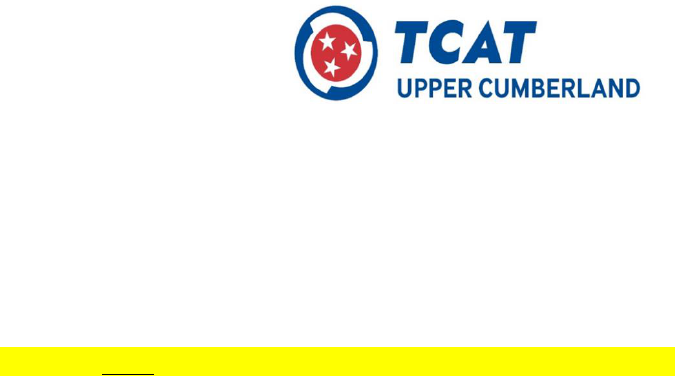
P a g e 34 | 47
CLINICAL COMPETENCIES
A Clinical Competencies record will be used by all students enrolled in the Practical Nursing
Program of TCAT Upper Cumberland and TCAT - Livingston. The record will be held by the student
through-out the year and it will be the responsibility of the student to submit said record to his/her
instructor/proctor for initials when any skill has been performed.
• Students must carry this record with them in all clinical rotations. The record should be initialed
and dated by the instructor/proctor at the time of the performance of the skill.
• Other licensed personnel may supervise skills in the clinical setting and initial performance.
Students will be required to display the Clinical Competencies record for mid-term and
quarterly evaluations and at the instructor's request through-out the year. This form will be
turned in prior to graduation and remains in the students file for validation of skill
performance.
• Students should make every effort to complete as many skills listed on the competencies prior
to finishing their clinical practicum.
• In the event a student loses the Clinical Competencies record, they will be required to
purchase a new Clinical Competencies record and demonstrate each skill as if he/she had not
been previously evaluated.
• Each student is to have a clinical time sheet for each facility. The clinical sheets need to be
signed by the nurse to whom you are assigned with her signature and the time you arrive and
the time you leave. It is the students’ responsibility to get the form signed.
EMERGENCY HEALTH CARE POLICY
First aid and supportive treatment will be provided in the event of an accidental injury or sudden
illness while in the clinical facility. However, it will be at the expense of the student to provide any
follow up labs or medication. Each student is responsible for his/her medical expenses for
services rendered.
CDC Guidelines
To minimize risks, you should always take precautions during any procedure that might bring you in
contact with the patient’s body fluids. Follow these guidelines based on CDC recommendations.
o Initiate blood and body fluids precautions, according to hospital policy.
o Wash your hands before and after contact with the patient or any soiled items.
o Don’t handle patient care equipment or assist with invasive procedures if you have any open
sores or irritated skin on your hands.
o Wear gloves when touching the patient’s mucous membranes or broken skin. Remove the
gloves and dispose of them before touching any other patient or equipment. If you tear your
gloves (For example, if a needle punctures the glove) change the glove and remove the
offending instrument from the sterile field.
o Wear mask and gown for any procedure that might involve splashing blood or secretions. (For
example, suctioning.
o Dispose of needles in a puncture-proof container immediately after use.
P a g e 35 | 47
o Label laboratory specimens BLOOD AND BODY FLUID PRECATIONS. Place them in
appropriate plastic bags for transport (according to hospital policy).
o Clean blood and other body fluid spills with a 1:10 solution of sodium hypochlorite 5.25%
(Follow facility policy).
o Use universal precautions.
Student Exposure Control Policy
The student will have completed blood, body fluid, and hazardous waste training prior to entering the
clinical setting. Students will have been taught policies and procedures concerning personal
protective equipment and the proper use of these items. While working in the clinical area it is
possible to become exposed to blood or other body fluids. In the event an occurrence was to happen,
the student should adhere to the following procedure:
o First Aid Immediately- Wash site with soap and water, follow with alcohol or other
disinfectant and apply sterile dressing. If the exposed area were to be an eye or other
mucus membrane, water would be sufficient.
o Notify immediately Your Clinical instructor, Supervisor, or Nurse-Of the occurrence
and then inform the Nursing Coordinator at the TCAT Upper Cumberland/Livingston
Nursing Program.
o Complete the Employee Occurrence Report (EOR)-Have the clinical instructor,
supervisor, or nurse assist you and sign the report. (Document the source’s Medical
Record Number on the (EOR).
o Notify the “Nursing House Supervisor”- For the order of “Needle Stick Panel: to be
written on the patient’s chart and notify the laboratory.
o It is the student’s responsibility to take care of the cost related to the incident.
ALL REPORTING OF OCCURRENCES MUST BE DONE IMMEDIATELY
Student Pregnancy
In the event of pregnancy, the student must have verification from an authorized health care provider
stating eligibility to continue in the program. This statement shall indicate whether the student can
safely perform all duties necessary for her training program without limitations or danger to her
personal health or that of the patient. This form must be returned to the PN Coordinator before going
to clinicals.
It is the responsibility of the student to inform the coordinator of any health condition which could
affect their ability to participate in the clinical practice.
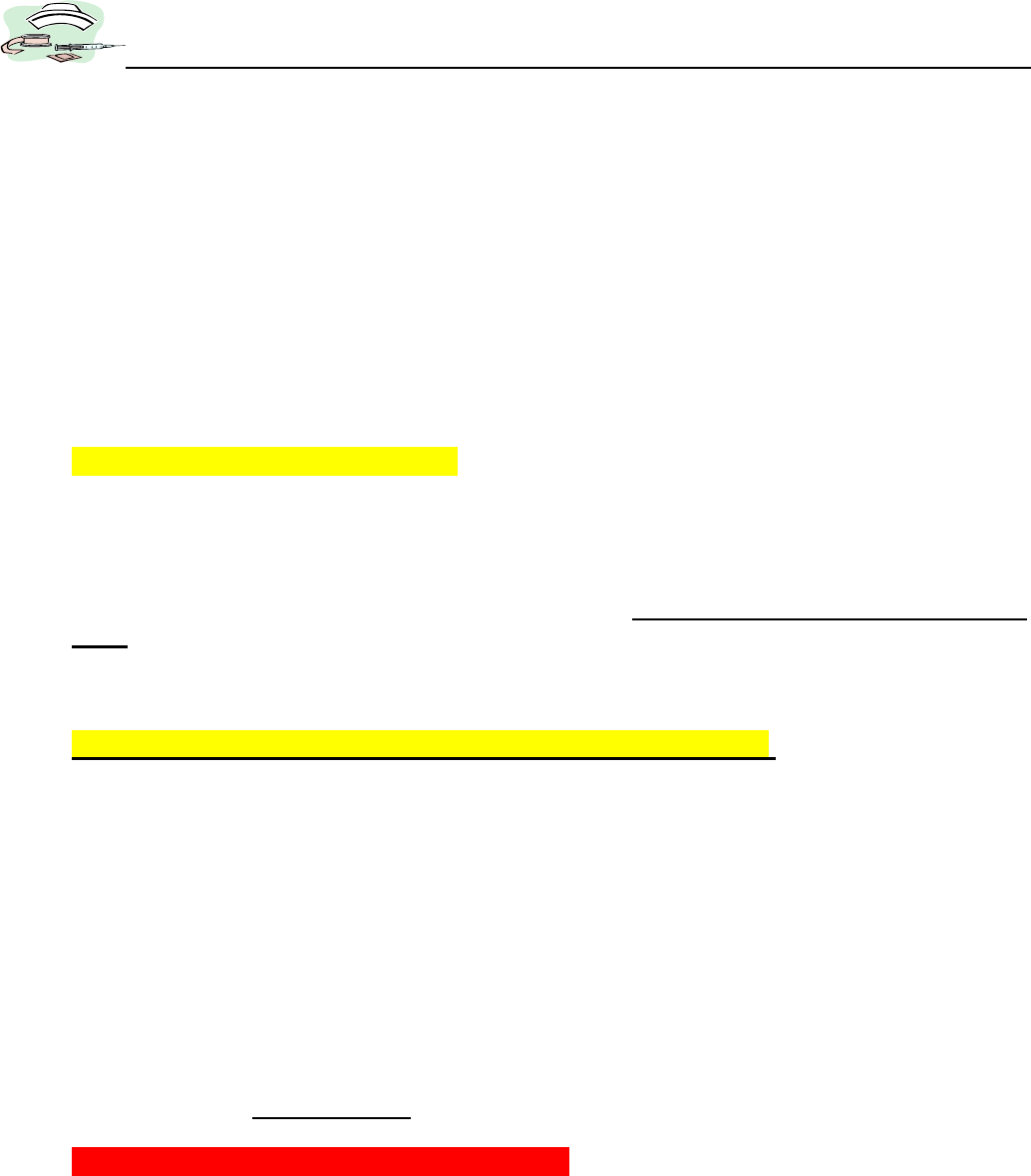
P a g e 36 | 47
TCAT-Upper Cumberland/TCAT - Livingston Clinical Reminders: (for clinical rotations)
• Uniforms must be clean, pressed, clean white shoes.
• White lab coat may be worn (optional).
• Equipment to be brought to clinical:
1. Stethoscope
2. Bandage scissors.
3. Watch with second hand.
4. Clinical notebook with 8 X 11 paper for documentation
5. Drug reference.
6. Black permanent ink pen (and Sharpie marker)
7. Mints/optional, (no gum chewing!)
• Stud earrings (no more than one earring per ear). All other piercings (tongue, nose, etc.)
must be removed. (See handbook)
• All exposed tattoos must be covered.
• One ring/set (beware – high mounted stones can be lost, or cause injury to the patient).
• No perfume or strong-smelling scents are to be worn.
• Hygiene – All students should be smell free! This includes strong odors of cigarettes, body
odor and garlic!
• Students are to check in with the assigned instructor before the scheduled rotation start
time. Arrive a little early if you are a slow walker! If there is more than one clinical instructor at
a facility, we will designate who will be taking attendance. Students in clinical rotations (e.g.
OB, etc.) must get the supervising nurse to initial arrival and exit times on appropriate form. If
tardy, let the instructor know if at the facility.
• Student cell phones are not allowed within the clinical facility. See clinical responsibilities
(personal possession/use of a cell phone) In case of an emergency, contact should be made
through TCAT Upper Cumberland (931)444-1328 or TCAT-L at 931-823-5525.Violation of
policy will result in disciplinary action.
• Clinical Attendance: see page 27 regarding clinicals.
1. Notice of clinical absence must be reported prior to starting time (see PN handbook). If
an instructor is not there, you can leave a message, but you should call back and speak
with your assigned clinical instructor. Instructors may give you their cell phone numbers
and if so, you may contact them via their cell.
2. Students must be present within one-half hour of their scheduled clinical starting time,
or you will be sent home. For example, if you are scheduled to start at 0700, you must
be there, at the latest, by 0730 or risk being counted six hours absent. Clinical
absences may have to be completed if the student misses valuable practice time.
3. Students may not leave the facilities during assigned clinical times unless given
permission from their instructors.
• There will be no smoking at any clinical site.
• It is recommended purses, and other valuables and cell phones, be locked in your vehicle
trunk. Do not bring valuables or cash (other than what is in your pocket) into the facility. The
facility will not be responsible for losses.
• Parking – Carpool if possible and park only in the designated areas (which will be stipulated by
the facility).
Failure to abide by any of these policies may result in you being sent home, counted absent,
and receiving a worker characteristic grade point deduction. Repeated violations may result
in disciplinary action (review your handbook!)
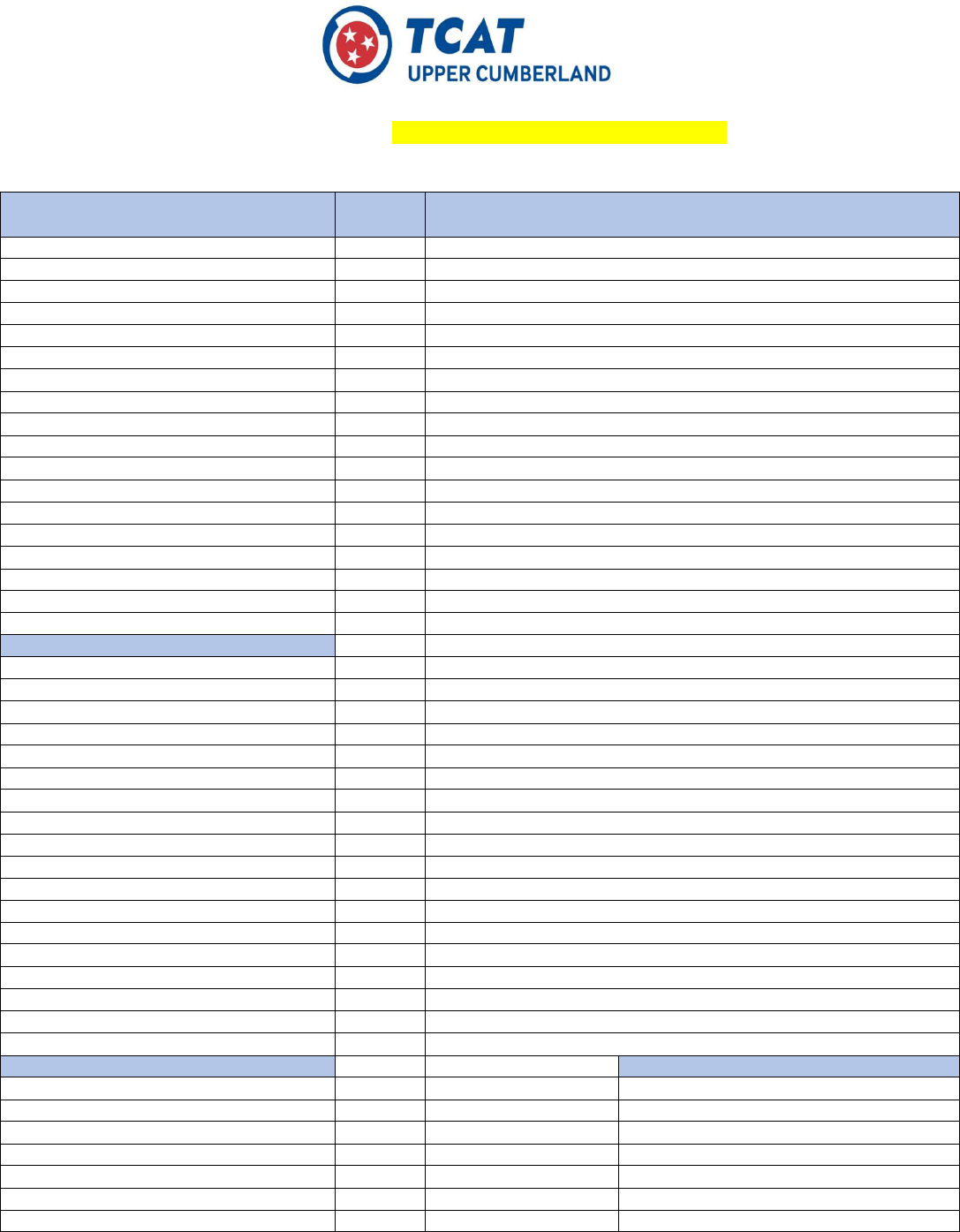
P a g e 37 | 47
CLINICAL COMPETENCIES* (Indicates performance, not proficiency)
Student Name: _____________________________________________
Skill
Lab
Clinical (Observer, please date and initial each occurrence)
Blood Glucose
Catheters:
Foley Catheter Insertion
Straight Catheter Insertion
Catheter Removal
Catheter Irrigation
Documentation
Dressings:
Clean Dressing
Sterile Dressing
Decubitus Care
Enemas
Enteral Tubes
NG Tube Care/Removal
Staple/Suture Removal
Suctioning
Telemetry
Med/IV Administration
Oral
Topical (Creams/Patches)
Enteral
Eye/Ear Drops
Inhalants/Aerosols
Suppositories
Intradermal
Intramuscular
Subcutaneous
Mixed Insulin procedure
IV Primary
IVPB (intermittent)
IVPB (secondary)
IV Flush
IV Conversion to Lock
IV Tubing Change
IV D/C
IV Push
Additional Skills
Observer’s Signature & Title/Initials
P a g e 38 | 47
MEDICATION ERRORS
The administration of medicine is critical to the welfare of the patient; therefore, a separate record is
needed in case of repeated errors. Students must learn the necessity for accuracy in medication
administration. When a medication error is committed, the error will be documented on the
Medication Error Form and kept in the student’s file. A medication error occurs if there is a violation
of one of the six rights during preparation and/or administration of the medications as follows:
1. Right Patient
2. Right Medication
3. Right Dose
4. Right Route
5. Right Time
6. Right Patient Education
7. Right Documentation
8. Right to Refuse
9. Right to Assessment
10. Right to Evaluation
Medication errors can include: Omission of medication patient as scheduled. Potential error in
medication administration (even if the instructor prevents an error, it will be documented as an error).
Medication administration errors by students who violate any one of the seven rights will be
documented on the Medication Error Form and medication error points will be cumulative during the
second and third trimesters, however, each occurrence will affect clinical evaluations individually.
Points for medication errors will be based on type of error; route of error; classification of drug / IV
solution; & reporting time.
Medication errors are serious clinical “at risk” deviations that will result in counselling, possible
suspension, or termination from the program - dependent upon the severity of the infraction and point
accumulation. All medication errors will affect the clinical grade.
The school reserves the right for taking immediate action
regarding any error which displays gross incompetence or negligence.
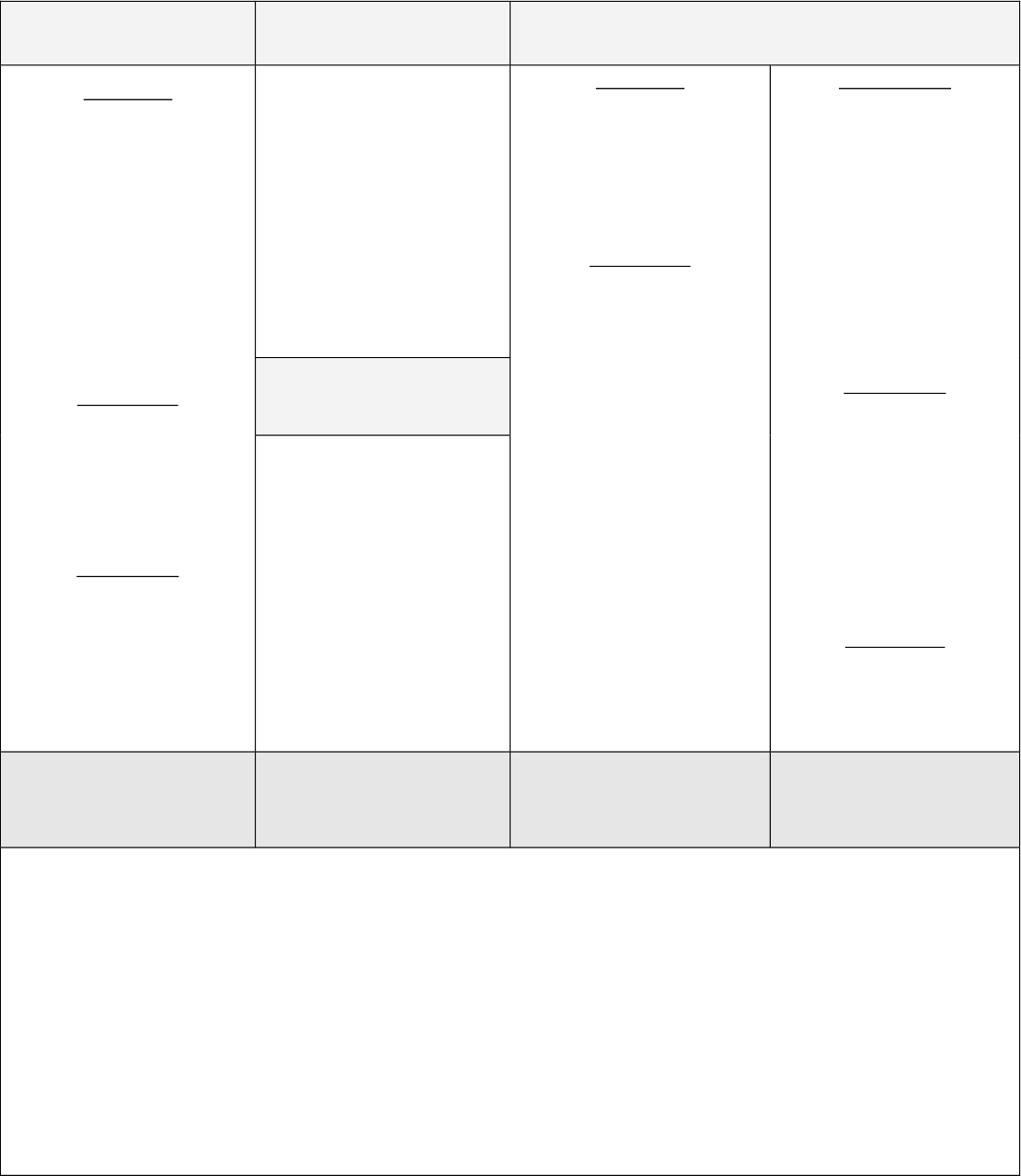
P a g e 39 | 47
MEDICATION ERROR REPORTING FORM Year to Date Total ____________
Name of Student ___________________________________________ Date _____________
Type of Error
Route of Administration
Classification of Drug/IV Solution
One Point
Wrong time . . . . . . . . . . 1
Wrong route . . . . . . . . . 1
Omission . . . . . . . . . . . . 1
(for each dose omitted)
Wrong date . . . . . . . . . . 1
Wrong IV rate . . . . . . . . 1
(for each hr at wrong rate)
Wrong equipment . . . . 1
Two Points
Wrong dose . . . . . . . . . . 2
Extra dose . . . . . . . . . . . 2
(For each extra dose)
Wrong med/sol . . . . . . . 2
Four Points
Unordered med . . . . . . . 4
Med given to pt with
stated allergy . . . . . . . . . 4
Documentation . . . . . . . 4
Wrong pt/improper ID. . 4
PO . . . . . . . . . . . . . . 2
Enteral Tubes . . . . . . 2
IM/SC . . . . . . . . . . . . 3
IV . . . . . . . . . . . . . . . 4
Other . . . . . . . . . . . . . 1
(transdermal/etc.)
One Point
Antacid . . . . . . . . . . . . . 1
Antidiarrheal . . . . . . . . . .1
Cathartic/laxative . . . . . . 1
Unmedicated IV . . . . . . . 1
Expectorant/antitussive . .1
Two Points
Antianxiety . . . . . . . . . . 2
Anticholinergic. . . . . . . . 2
Antidepressant . . . . . . . . 2
Antiemetic .. . . . . . . . . . 2
Antihistamine/histamine 2
Anti-inflammatory . . . . . 2
Antiparkinson . . . . . . . . .2
Antiulcer agent . . . . . . . .2
Coating agent . . . . . . . . . 2
Electrolyte . . . . . . . . . . . 2
Estrogen/Progestin . . . . . 2
Gastric stimulants . . . . . .2
IVF with additives . . . . . 2
Lipid lowering agent . . . .2
Muscle Relaxant . . . . . . .2
Nonbarbiturate
sed/hypnotic . . . . . . . . . . 2
Non-narcotic analgesic . 2
Ophthalmic Agent . . . . . 2
Three Points
Antimicrobials . . . . . . . 3
Anticonvulsant . . . . . . . 3
Antipsychotic . . . . . . . . 3
Barbiturate . . . . . . . . . . 3
Colony stimulating . . . 3
Diuretic . . . . . . . . . . . . .3
Glucose/Glucagon 50% 3
Narcotic antagonist . . . 3
Oral antidiabetic agent . 3
Steroid . . . . . . . . . . . . . .3
Four Points
Anticoagulant/
thrombolytic . . . . . . . . . 4
Bronchodilator . . . . . . . 4
Cardiovascular drug . . . 4
Antidysrrhythmic . . . . . 4
Antihypertensive . . . . . .4
Vasoactive/vasodilator . 4
Narcotic analgesic . . . . 4
Five Points
Heparin Products . . . . . 5
TPN . . . . . . . . . . . . . . . 5
Insulin . . . . . . . . . . . . . 5
Reporting Time
31 – 60 min . . . . . . 1
61 min – 6 hr . . . . . 2
Over 6 hrs . . . . . . . .3
Type total _______
Route/ _______
time total
Class/solution _______
total
Grand Total _______
Comments: ________________________________________________________________________________
__________________________________________________________________________________________
__________________________________________________________________________________________
__________________________________________________________________________________________
__________________________________________________________________________________________
Instructor Signature:
__________________________________________________________________________________________

P a g e 40 | 47
TCAT UPPER CUMBERLAND, TCAT - LIVINGSTON AND TCAT- LIVINGSTON - CHEC
_____ Quality of Work (4 points each for possible 12 points)
1. Work is acceptable for current level of training
2. Takes pride in work/work is neat and orderly
3. Stays busy and on task in both clinical and classroom setting
Comments:_________________________________________________________________________________
_____Productivity (4 points each for possible 16 points)
1. Follows all Safety procedures
2. Completes assignments and tasks on time or ahead of schedule
3. Follows directions and procedures
4. Works independently after initial instructions, finds other work when assigned job is completed
Comments:_________________________________________________________________________________
_____ Attendance (4 points each for possible 24 points)
1. Attends class/clinical
2. Provides documentation for all absences
3. Arrives and leaves on time (is working at designated start time)
4. Notifies instructor when absent
5. Notifies instructor in advance of planned absences
6. Checks out with instructor when leaving early
Comments:_________________________________________________________________________________
_____ Appearance (4 points each for possible 8 points)
1. Dresses appropriately for area of training (per PN Handbook)
2. Displays appropriate grooming, hygiene, and etiquette
Comments:__________________________________________________________________________________
_____ Cooperation/Teamwork (4 points each for possible 24 points)
1. Respects the rights of others
2. Displays ability to be a team worker
3. Displays a customer service attitude
4. Participates in lab / classroom cleanup
5. Follows all school/ class/ clinical/ lab rules (internet usage, cell phone, break/lunch schedules, etc.)
6. Maintains appropriate relationships with supervisors and peers (gets along with others)
Comments:_________________________________________________________________________________
_____ Character (4 points each for possible 16 points)
1. Displays loyalty, honesty, trustworthiness, dependability and reliability
2. Displays self-discipline and self-responsibility
3. Shows respect for people and property and does not engage in harassment
4. Respects confidentiality
Comments:_________________________________________________________________________________
_
_____ (Student Total Score)
____________________________________________________ ____________________________________
Student Signature Date
____________________________________________________ ____________________________________
Instructor Signature Date Date
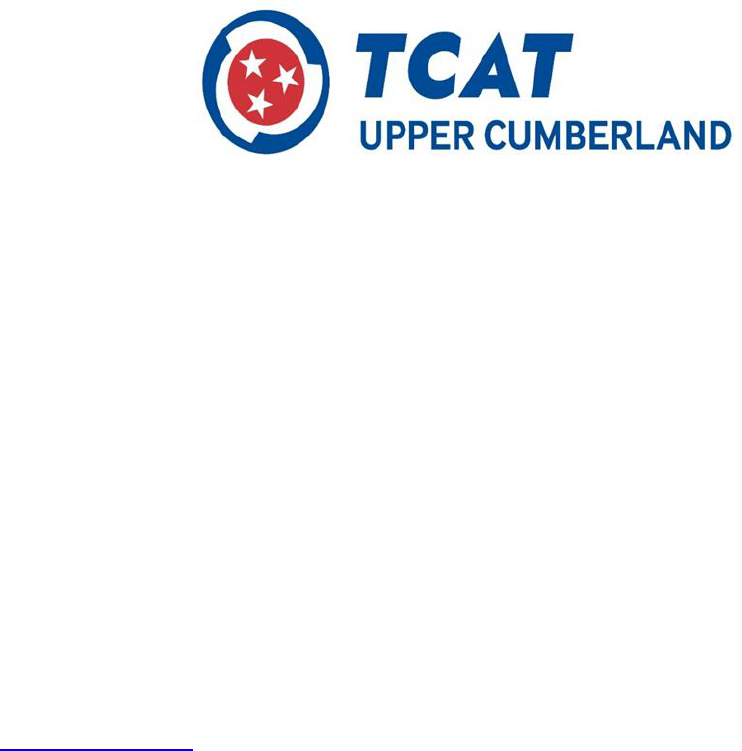
P a g e 41 | 47
CHALLENGING THE STATES NURSE AIDE EXAM (D &S)
• If desired the practical nursing student may challenge the Nurse Aide Examination
• The following stipulations must be completed to be eligible:
o Completed the basic nursing skills portion of the curriculum
o Had a minimum of 35 hours of clinical (50 hours preferred) which includes a concentration
in geriatric nursing.
• The student must submit a transcript from the school to verify their education and submit it with
the appropriate application from Diversified Technologies (D & S).
• Applications may be obtained from the Tennessee Department of Health or the D & S website.
www.hdmaster.com

P a g e 42 | 47
Student Nondisclosure Agreement
TCAT Upper Cumberland and TCAT – Livingston has a legal and ethical responsibility to safeguard
the privacy assigned student and to protect the privacy and confidentiality of patient health
information. During my assignment at any Clinical Affiliate, I may come into possession of
confidential patient information, even though I may not be directly involved in providing patient
services.
I understand that such information must be maintained in the strictest confidence. As a condition of
my assignment, I hereby agree that, unless directed by my instructor/supervisor, I will not at any time
during or after my assignment with the Clinical Affiliate disclose any patient information to any person
whatsoever or permit any person whatsoever to examine or make copies of any patient reports or
other documents prepared by me, coming into my possession, or under my control, or use patient
information, other than as necessary during my assignment. When patient information must be
discussed with other healthcare practitioners during my assignment, I will use discretion to ensure
that such conversations cannot be overheard by others who are not involved in the patient’s care. I
will not use any kind of photographic equipment, including cell phone cameras, during my clinical
assignment at any clinical affiliate.
I understand that violation of the agreement may result in corrective action, up to and including
termination from the program.
________________________________________________________________________________
Printed Name (legible, please) SIGNATURE DATE
Note: This must be signed and returned as instructed.

P a g e 43 | 47
STUDENT AGREEMENT
I hereby state that I have read and understand the TCAT Upper Cumberland and TCAT- Livingston’s
PN programs guidelines and will abide by these rules of conduct. Failure to comply with TCAT Upper
Cumberland and TCAT- Livingston’s PN handbook advisements may result in disciplinary action, that
may include student evaluation notations, worker characteristic grade reductions, suspension, and/or
possible termination from the program. Furthermore, I understand that because my training requires
time spent in affiliating health care facilities, I am subject to all to all the rules and regulations of that
agency.
Date: ______________Signature (legible, please): _________________________
Note: This must be signed and returned as instructed.

P a g e 44 | 47
Date____________________________
Regarding: Tennessee State Board of Licensure
I am aware that I may successfully complete my diploma in practical nursing at TCAT Upper
Cumberland and TCAT– Livingston under the terms outlined in the policies and procedures of the
TCAT Upper Cumberland and TCAT – Upper Cumberland @ Livingston Practical Nursing Program.
This does not guarantee that the Tennessee Board of Nursing (TBON) will accept my application for
licensure (upon graduation) or issue me a Practical Nursing License.
Name(print)_______________________________________________________________________
Signature_________________________________________________________________________

P a g e 45 | 47
TCAT- Upper Cumberland and TCAT – Livingston Practical Nursing Cell Phone Policy
Name (print)____________________________________________________________
Date________________________________
This is to certify that I have read and am aware of the cell phone and electronic device policy in both the classroom and
clinical practicum sites. Failure to abide by these policies will result in disciplinary action (suspension, referral to
director, or TCAT president).
Signature ________________________________________________________________________________________

P a g e 46 | 47
I have been instructed in and understand the safety precautions provided by TCAT
Upper Cumberland and TCAT- Livingston agree to participate fully and correctly in
drills as well as in the event of an actual emergency.
Date:_____________
Student Name (printed)_________________________________
Signature:____________________________________________

P a g e 47 | 47
PN Handbook
Cellphone, smart watch, electronic devices: Use of Cell phones/or other electronic devices is
strictly prohibited in the classroom or during clinical practicum (lecture, testing), unless permission is
granted by the instructor.
Sign outs: Any student who leaves before the end of the school day should first sign out with their
instructor. Students who fail to sign out may be dismissed from the program. Hours from signing out
will be counted as absence hours.
Calling in Absence: When a student misses three (3) consecutive days without contacting the
college, that student will be presumed to have withdrawn from the college.
Student Handbook-(see pages 29-46 for student polices)
Classes and Class Schedules: All classes will start and end promptly at the designated time.
Class breaks and lunch will be observed strictly as shown below. No student will leave the classroom
or shop without permission from the instructor. Violation of this rule will be just cause for dismissal.
Daily Schedule (All Classes Start at 7:45 a.m. and End at 2:30 p.m.)**
Calling in Absences: All students are required to call absences. Any student who is absent three
consecutive days will be presumed to have withdrawn from the college. (931)823-5525.
Sign ins: If a student is not in the classroom/shop at the designated time for the class to start
(including returning from break and lunch), the student is considered tardy. Students should first
sign-in on the attendance sheet in the classroom with their instructor upon entering the
classroom/shop. Students who fail to sign-in may be dismissed.
Sign-outs: A student who leaves before the end of the school day should first sign out with their
instructor and then sign out on the attendance sheet in the classroom. Students who fail to sign out
may be dismissed.
Cell Phone Policy: Students shall be allowed to possess cellular phones, pagers, etc.; however,
such devices must not be visible and must remain turned off during the instructional school day.
Phones are allowed to be turned on during breaks and lunch periods only. Students who violate this
policy can be suspended or dismissed.
Failure to abide by these policies will result in disciplinary action up to termination from the
program._______________________________________________________________________
Student Signature Date
